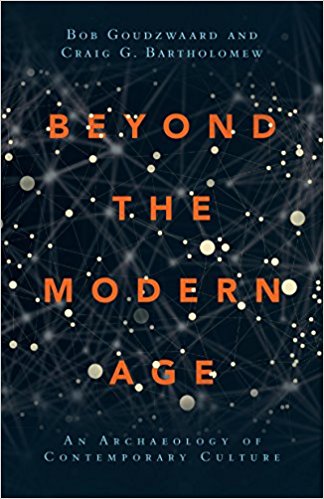 Beyond the Modern Age: An Archaeology of Contemporary Culture by Craig Bartholomew & Bob Goudzwaard (IVP Academic) $35.00 Our sale price $28.00
Beyond the Modern Age: An Archaeology of Contemporary Culture by Craig Bartholomew & Bob Goudzwaard (IVP Academic) $35.00 Our sale price $28.00
I really want this review to capture your interest because the book under consideration is important, perhaps one of the most important releases of the year.
I’ve spent probably too much time worrying about how to start: should I extol the qualifications of the co-authors, or tell about my own history with at least one of the authors who I view as a hero, hinting at why those that admire our work here at Hearts & Minds should be interested in this bit of backstory and buy the book from us, of course? Or should I just dive into the substance of the book?
Readers of all sorts should be happy to hear that this pair of authors are colorful characters who are themselves exceptionally good scholars and at least Goudzwaard can properly be called an internationally-esteemed public intellectual. Readers usually like to know of the qualifications of the authors and these guys are excellent.
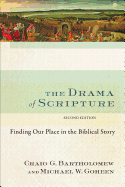 Perhaps you have read some of Craig Bartholomew’s many books; he has edited or written a wide array of excellent titles, in Biblical studies mostly. He has made some pretty major contributions to the world of Biblical scholarship, including some extraordinary, major commentaries on wisdom literature, an impressive book on hermeneutics, and he has done some insightful but brief, popular level books – one on praying the Psalms, a short one on Job, another little one called Excellence in Preaching. Just last week (in my BookNotes review of Keeping Place by Jen Pollock Michel) I described his almost one-of-a-kind serious work on a theology of place called Where Mortals Dwell: A Christian View of Place for Today. Perhaps Craig is most known for his role in what has become one of the most popular introductions to the Bible in use these days, The Drama of Scripture: Finding Our Place in the Biblical Story. That excellent book has been adapted and abridged into a more youthful, much shorter and approachable book called The True Story of the Whole World: Finding Your Place in the Biblical Drama.
Perhaps you have read some of Craig Bartholomew’s many books; he has edited or written a wide array of excellent titles, in Biblical studies mostly. He has made some pretty major contributions to the world of Biblical scholarship, including some extraordinary, major commentaries on wisdom literature, an impressive book on hermeneutics, and he has done some insightful but brief, popular level books – one on praying the Psalms, a short one on Job, another little one called Excellence in Preaching. Just last week (in my BookNotes review of Keeping Place by Jen Pollock Michel) I described his almost one-of-a-kind serious work on a theology of place called Where Mortals Dwell: A Christian View of Place for Today. Perhaps Craig is most known for his role in what has become one of the most popular introductions to the Bible in use these days, The Drama of Scripture: Finding Our Place in the Biblical Story. That excellent book has been adapted and abridged into a more youthful, much shorter and approachable book called The True Story of the Whole World: Finding Your Place in the Biblical Drama.
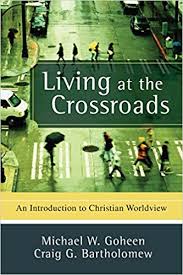 Both of those were co-written by Michael Goheen, with whom he wrote two follow-up books to The Drama of Scripture. The first sequel is called Living in the Crossroads which is a mature and thoughtful guide to what we mean by a Christian worldview (an impressive book that is not as used as much as it should be among us, I’d say) and then a guide to how a reformational worldview might lead to a distinctively Christian approach to philosophy simply called Christian Philosophy: A Systematic and Narrative Introduction. It’s really quite interesting.
Both of those were co-written by Michael Goheen, with whom he wrote two follow-up books to The Drama of Scripture. The first sequel is called Living in the Crossroads which is a mature and thoughtful guide to what we mean by a Christian worldview (an impressive book that is not as used as much as it should be among us, I’d say) and then a guide to how a reformational worldview might lead to a distinctively Christian approach to philosophy simply called Christian Philosophy: A Systematic and Narrative Introduction. It’s really quite interesting.
One does not have to read this Bartholomew trilogy (that moves us from Bible to worldview to philosophy) to appreciate his new Beyond the Modern Age but it helps to know that he works out of this broad worldview of “all of life redeemed” that is informed by a wholistic and narrative approach to the “true story of the whole world” found in the plot-line of the Bible that, in turn, funds a serious engagement with the history of philosophy, the world of ideas, showing why such intellectual work is important if we are going to effectively live out of a Biblical story, a Christian worldview, at the crossroads of our modern and postmodern cultures. Yes, being aware that Bartholomew – who studied under the professor of aesthetics and art critic Calvin Seerveld, who schooled him in Dutch neo-Calvinist philosophy affiliated with the names Dooyeweerd and Vollenhoven – is that sort of Bible scholar with a view to deep cultural engagement in the line of Kuyper and other such thinkers will help you realize the weight and linage and significance and relevance of Beyond the Modern Age. Interestingly, he was born in South Africa, and may have met Goudzwaard there decades ago when Bob was leveraging his global significance as a leader in Dutch politics to help create a post-apartheid society there.
One doesn’t have to read all of Bob Goudzwaard’s many books either, but knowing something about him may help not only inspire you to want to pick up this new volume but to do so with great gratitude for his public witness.
 There is a beautiful appendix in the back of Beyond the Modern Age that is written by one of my old, dear friends, Mark Vander Vennen (co-author of the popular Advent of Justice devotional) which tells of the intellectual and political service of Goudzwaard, who has served as a Member of Parliament in his native Holland. Bob is a trained economist and even has a prestigious think tank in Holland named after his own unique brand of Scripturally normative, multi-dimensional, stewardly economics. He has worked with the Kuyperian political party in the Netherlands, served as both activist and researcher for the alternative Christian labor union both there and in Canada, and has moved in circles leading ministry conversations between the World Bank and the World Council of Churches. To say he is one of the most unsung but significant Christian public leaders of our time is not an overstatement and reading Mark’s short tribute to Bob’s dedicated life of service is inspiring and serves as a model of the sort of engaged, influential, impactful participation Christian scholars and leaders can have. (The previous book which Goudzwaard co-authored carries a lovely, very positive introduction by none other than Desmond Tutu which further illustrates his global reputation.) I suggest buying Beyond the Modern Age and starting with that appendix in the back. Framing what is going to be a pretty serious academic read with that kind of extraordinary testimony of public involvement (born from great sacrifice and notable humility) will help you realize how all this might play out. It shows how knowing important theories and scholars and philosophers and their influence, understood in light of a seriously Christian perspective, can nearly make one a 21st century prophet.
There is a beautiful appendix in the back of Beyond the Modern Age that is written by one of my old, dear friends, Mark Vander Vennen (co-author of the popular Advent of Justice devotional) which tells of the intellectual and political service of Goudzwaard, who has served as a Member of Parliament in his native Holland. Bob is a trained economist and even has a prestigious think tank in Holland named after his own unique brand of Scripturally normative, multi-dimensional, stewardly economics. He has worked with the Kuyperian political party in the Netherlands, served as both activist and researcher for the alternative Christian labor union both there and in Canada, and has moved in circles leading ministry conversations between the World Bank and the World Council of Churches. To say he is one of the most unsung but significant Christian public leaders of our time is not an overstatement and reading Mark’s short tribute to Bob’s dedicated life of service is inspiring and serves as a model of the sort of engaged, influential, impactful participation Christian scholars and leaders can have. (The previous book which Goudzwaard co-authored carries a lovely, very positive introduction by none other than Desmond Tutu which further illustrates his global reputation.) I suggest buying Beyond the Modern Age and starting with that appendix in the back. Framing what is going to be a pretty serious academic read with that kind of extraordinary testimony of public involvement (born from great sacrifice and notable humility) will help you realize how all this might play out. It shows how knowing important theories and scholars and philosophers and their influence, understood in light of a seriously Christian perspective, can nearly make one a 21st century prophet.
(I share the story often that I was irrevocably struck in the early 70s when a friend gave me a book by the Episcopalian priest and social activist Malcolm Boyd called Are You Running With Me, Jesus? who said that while we may read the Biblical prophets in our Sunday schools and Bible studies but we wouldn’t recognize one if he showed up at our church. Well, we evangelicals didn’t study Amos or Habakkuk or Jeremiah much, to be honest, in those years, but as some have, we have also learned to discern at least a bit of what the Spirit is doing in our midst now. I think I can say that I am not alone in seeing the Word of the Lord coming to us today through gentlemen like Bob Goudzwaard. I hope you recognize that about him and his co-author as well, that these are truly vital thinkers, prophets, almost, for our time. Their “Archaeology of Contemporary Culture” is not only well informed and educational, it is nearly an act of prophecy, bearing witness against the idols of the age, and pointing to positive developments which bear the possibilities of renewal and shalom.)
I’ll admit to a very small connection to the work of Goudzwaard, too: his first two books in English were life-changing for me. I read in maybe 1973 A Christian Political Option published in Toronto by Wedge Publishing that invited a distinctively Christian view of politics and principled citizenship (this long before the rise of the so-called Christian right or the Christian left and long before authors like David 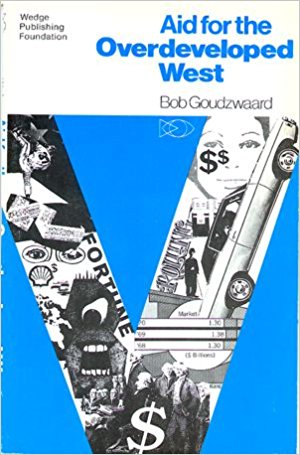 Koyzis and James Skillen) which left its mark in ways that to this day have kept me disenchanted with simple bipolar partisanship. And Goudzwaard’s wise, justice-oriented set of punchy essays Aid for the Overdeveloped West forever (along with Ron Sider’s Rich Christians in an Age of Hunger and Art Simon’s Bread for the World) influenced how I thought about structures and ideologies that shaped and moved our world’s economic arrangements and how such systems are never neutral, but informed by values and priorities that may indicate the presence of false gods and distorted ideologies. These two books reminded me that (just for instance) simple charity is inadequate to fight poverty and simple living and recycling isn’t enough to fight global environmental disasters.
Koyzis and James Skillen) which left its mark in ways that to this day have kept me disenchanted with simple bipolar partisanship. And Goudzwaard’s wise, justice-oriented set of punchy essays Aid for the Overdeveloped West forever (along with Ron Sider’s Rich Christians in an Age of Hunger and Art Simon’s Bread for the World) influenced how I thought about structures and ideologies that shaped and moved our world’s economic arrangements and how such systems are never neutral, but informed by values and priorities that may indicate the presence of false gods and distorted ideologies. These two books reminded me that (just for instance) simple charity is inadequate to fight poverty and simple living and recycling isn’t enough to fight global environmental disasters.
After the publication of his sadly now out of print Capitalism & Progress, a diagnostic study of the history of economic ideas showing that Karl Marx and Adam Smith agreed on much that stemmed from the secular Enlightenment (so Christians should be suspect of any naïve approval of either socialism or capitalism) Bob was led to write a bit more about the very nature of ideas and idolatry. In 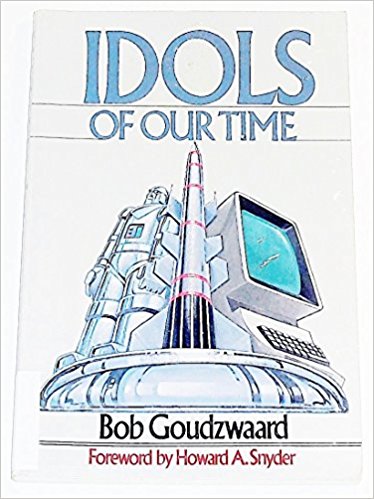 1984 IVP published a controversial and widely discussed book, a small paperback called Idols of Our Time with a forward by Howard Snyder. After its first publisher dropped it, for a while Dordt College Press kept it in print, until it became too outdated, in part due to its discussion of the nuclear arms race between the US and the USSR, the nature of which changed with the collapse of the Soviet Union in those years.) For what it is worth, I helped write one paragraph of that book – my friend Mark Vander Vennen was translating it from the Dutch and he needed a few lines about US arms manufacturers since Goudzwaard’s Dutch version cited European corporations and policies and data. That I helped with a few sentences of one page of Idols of Our Time remains one of the great privileges of my life.
1984 IVP published a controversial and widely discussed book, a small paperback called Idols of Our Time with a forward by Howard Snyder. After its first publisher dropped it, for a while Dordt College Press kept it in print, until it became too outdated, in part due to its discussion of the nuclear arms race between the US and the USSR, the nature of which changed with the collapse of the Soviet Union in those years.) For what it is worth, I helped write one paragraph of that book – my friend Mark Vander Vennen was translating it from the Dutch and he needed a few lines about US arms manufacturers since Goudzwaard’s Dutch version cited European corporations and policies and data. That I helped with a few sentences of one page of Idols of Our Time remains one of the great privileges of my life.
The content of those two seminal works (Capitalism & Progress and Idols of Our Time) on the role of ideologies that become idols that become encoded in policy has been updated significantly and has found its way in this near magnum opus 21st century project. It would be wrong to say that Beyond the Modern Age is a mere update to C&P and Idols… but that foundational stuff about how ideas become ideologies and thereby fail to give an adequate account of our times and what needs to be done seems to inform this edgy new volume.
And so, dear readers, these authors are intellectual giants and they are leaders of a deeply Biblical sort. They may not be as well known as other Christian public intellectuals, but they are of the highest caliber. And I have been influenced considerably by both of them. For these two reasons I’d like to think that if you are reading this column, if you follow BookNotes or shop at Hearts & Minds, this is a book you should consider.
 Beyond the Modern Age: An Archeology… will be a major purchase for you and I suspect it will take some time to work through. It will be worth the effort. It has, at times, a breezy, conversational style, but the study is substantive, to say the least. If you’ve been out of college a while, it will be a great opportunity to exercise the old gray matter again, like enrolling in am adult education master’s class in the history of ideas and their contemporary social consequence. Both authors are capable teachers and usually clear (despite a few quirky phrases and some odd editing choices that I’d have cleaned up a bit.) They are gifted at making very complex philosophies more accessible and they are often helpful at showing why it matters. It makes for a scholarly book brimming with the excitement of learning and the energy that comes from grappling with important stuff that matters will help any thoughtful and motivated educated reader realize the benefit. It is the kind of stuff you just aren’t going to find anywhere else.
Beyond the Modern Age: An Archeology… will be a major purchase for you and I suspect it will take some time to work through. It will be worth the effort. It has, at times, a breezy, conversational style, but the study is substantive, to say the least. If you’ve been out of college a while, it will be a great opportunity to exercise the old gray matter again, like enrolling in am adult education master’s class in the history of ideas and their contemporary social consequence. Both authors are capable teachers and usually clear (despite a few quirky phrases and some odd editing choices that I’d have cleaned up a bit.) They are gifted at making very complex philosophies more accessible and they are often helpful at showing why it matters. It makes for a scholarly book brimming with the excitement of learning and the energy that comes from grappling with important stuff that matters will help any thoughtful and motivated educated reader realize the benefit. It is the kind of stuff you just aren’t going to find anywhere else.
FOUR REASONS TO BUY BEYOND THE MODERN AGE: AN ARCHEOLOGY OF CONTEMPORARY CULTURE
Allow me to share four things about it, and why it is helpful for you to have this information under your belt, why this is good book in which to invest your time. The first is the one I need to say the most about.
FIRST
First: this book looks at philosophers who have shaped the modern era (yes, we’re talking Locke and Hobbes and Kant and Hegel and Marx and Weber and so many more) as well as those who have thought deeply about its internal religious-like character and the ways in which its faith in false gods has often deformed Western culture. They draw on cultural critics as diverse as Hannah Arendt, Jurgen Habermas, Michel Foucault, Jean Baudrillard, Jacques Ellul, Charles Taylor, and Slavoj Zizek, ranging from early critiques of modernity from the likes of John Calvin, Abraham Kuyper and Pope Leo XIII to some as contemporary as the recently published Rod Dreher, Chris Hedges, Miroslav Volf and Naomi Klein. Most of these names will be recognized, at least, but if you are like me, you may need a score card to see who is for or against this or that movement of modernity or what each thinker proclaimed. Are they late modern or post-modern? Are they useful allies in the effort to discern a wise and consistently Christian approach or are they fundamentally anti-Christian? What do we make of the array of scholars and voices and movements that have arisen to critique and reform the harsh aspects of capitalism, the wasteful and vile nature of arms races, the seemingly intractable problems of global poverty and environmental degradation? This far-reaching book is more profound and more thorough in walking us through the voices and views that are “out there” then any other resource I know.
 So, first, know it is seriously philosophical and, like the good teachers they are, they go to great pains to explain very much about the thinkers they are teaching us about. There were times (I beg your pardon if you’re a whole lot smarter than I) when I rolled my eyes when they apologized for skimming too quickly over this thinker or that book or some article they said was influential and we just had to know more about it, when I thought they had gone on at a bit too much length. Ha. I think for most of us they are quite deep and thorough enough, and you may be tempted to skip a few pages along the way. I won’t admit if I did that or not, but I’m just saying this has moments of very serious critical engagement with assumptions and philosophies of some important thinkers.
So, first, know it is seriously philosophical and, like the good teachers they are, they go to great pains to explain very much about the thinkers they are teaching us about. There were times (I beg your pardon if you’re a whole lot smarter than I) when I rolled my eyes when they apologized for skimming too quickly over this thinker or that book or some article they said was influential and we just had to know more about it, when I thought they had gone on at a bit too much length. Ha. I think for most of us they are quite deep and thorough enough, and you may be tempted to skip a few pages along the way. I won’t admit if I did that or not, but I’m just saying this has moments of very serious critical engagement with assumptions and philosophies of some important thinkers.
Many of the thinkers they examine are major names in the Western canon and their unique critique is really, really helpful. In an age when we don’t think about the past as much as we ought, nor investigate the genealogy and development of current ideas, this sort of reading is nearly a lost art. I commend it to you.
Others of the thinkers they examine are representatives of certain counter movements to the grand rationalist Enlightenment project – the neo-Marxist Frankfurt school, for instance, or the views of law in political theorist such as Michael Sandel or John Rawls, or the rise of other critical schools. The way they show the logic of each person’s thought (and often critique it with Biblically-influenced insight) is nothing short of brilliant at times.
These portions of the book are important and not brief. But they are moderate-level, maybe even introductory at times, teaching us in orderly fashion just what each bit means. But there are other scholars and movements they really spend time on, using their insights in what seemed to me to be innovative and remarkable ways, going deep.
PHILIP RIEFF
For instance, they have nearly a whole chapter on the heady, brilliant work of the Jewish sociologist Philip Rieff. (You may recall, perhaps, that Rod Dreher cites him approvingly in a chapter in his recent Benedict Option.) In the hands of Bartholomew and Goudzwaard, this stunning thinker becomes lively and vital, and we realize the importance of his approach (using Freud a bit) to the relationship of culture and religion. One section suggests he can help us “discern the heart of modernity” and walks us through Rieff’s profound analysis. (Rieff’s critique isn’t the same as Charles Taylor’s, but his deep and broad learning and his big picture assessment seemed similar, especially as it examined notions such as “sacred order” and the “loss of the vertical.” Anyway, it’s that kind of stuff.)
RENE GIRARD
Another major scholar that they examine carefully, with much positive appreciation, is Rene Girard. Girard has an elaborately worked out approach to culture and its problems, stemming, most deeply, from how violence erupts (even as we use scapegoats) in our anxiety-filled desire to keep up with others. In other words, Bartholomew and Goudzwaard show us that Girard is a critic of misplaced desire. Many progressive and emergent theologians have recently discovered Girard although they have mostly applied his scapegoat theories to how we might think in new ways about sin and salvation, especially looking for nonviolent ways to understand the work of Christ’s death and the role of the cross in Christian theology. Be that as it may, Goudzwaard is – although deeply spiritual and theologically informed – not a theologian but an economist, and Bartholomew, although mostly a Biblical scholar, is functioning here with his philosophical gifts pushing towards a cultural theory and a vision of social reformation. That is, they are looking at Girard in ways that are more foundational and perhaps more generative for cultural renewal than when thinkers like Greg Boyd or Michael Hardin or Denny Weaver use his work theologically. Goudzwaard and Bartholomew work to understand Girard’s view of the person, insisting that we along with him ask what it means to be human? (I think of Vaclav Havel, here, who built much of his art and his political leadership around this very question, the question of responsibility.) Anyway, his work on Girard is a valuable part of the book and should intrigue many readers who have heard of this deep philosopher and wondered about him.
So, that is all the first reason to study this book: they tell us about key thinkers, helping us understand the intellectual architects of the modern world and the movements that have arisen to stand against some of the modern age. Culture, counter-culture? Left, right, center? Modern, post-modern? It’s hard to know where we are, culturally, and – as Brian Walsh put it in Subversive Christianity -to ask “what time is it?” We do not need cheap talk about being woke up. We need to study this stuff to know deeply what’s going on.
SECOND
Secondly, this is no mere philosophy class for the sake of learning about deep thinkers, valuable as that may be. Actually, this is a book that is trying to help us understand the tensions and paradoxes of our culture, in order to open up our insights about seemingly inherent problems to our way of life. The writers are looking below the surface to get the true lay of the land.
They ask:
The people who are now embarrassed or uncertain about the impacts of modernization – are they not the same people (or very similar to them) who earlier welcomed these developments? Are they not, just like us, the inventors, makers, producers, and promoters of these developments? What happened, perhaps even in the origins of modern thought, to produce such ambivalence today.
Except for the naïve few who are cheerleaders for Trump-like bluster about easy answers, most of us have mixed feelings about the pros and cons of the modern era. It seems that every technological blessing comes with a down side and unintended consequences. Just refining our tools a bit, tinkering with the system, isn’t adequate. Excepting some high-tech computer solution isn’t realistic, either. Bartholomew and Goudzwaard, incisive and insightful philosophers that they are, can see some of the problems inherent in the very thinkers and founders of the modern age and help us not fall for the basic assumptions and starting points that have help give rise to our social ills in the first place.
They remind us:
The invasion of modernity into contemporary life, thought, technologies, and economies in our societies and cultures is not a value-neutral phenomenon. Modernity brings with it its own mentality and spirituality.
Listen to them well:
We could even say that if we are not willing to understand the mental and spiritual forces driving modernity – modernity’s “heart and soul,” as it were – we risk not understanding ourselves as modern people or the paradoxes in which we find ourselves mired. All of us, though we live in different cultures, are at least partially touched by the spirit of modernity. And by that spirit we have also tried to construct our own worldviews.
They teach us that modernity is “the mother of not one but at least four different worldviews. These worldviews have emerged in a dialectical way, each eliciting the others, since the beginning of the modern era. Each of them has its own character and power by which is appeals to people today.”
If you are interested in this whole topic of worldview formation, how our culture thinks and works, what it believes (or, as they insist, how different folks and different quarters within the culture, since there is no one monolithic worldview running the world) Beyond the Modern Age: An Archaeology of Contemporary Culture will be very significant for your study and reflection. This book really offers a diagnosis and prognosis of our times.
THIRD
Thirdly, we should read this book because, in a way, it is a response to the concerns of the rising generation. They start out the book in the very beginning – and come back time and again – to a set of questions they asked students of theirs and the responses to their student survey. These students from several continents were mostly young adults, I gather, and their views of the world and their sense of their prospects as they grow into it are fascinating to hear.
Offering these student conversations in Beyond… are more than a device to help us value their project. It is a pastoral and caring starting point: they care about what their students are thinking and feeling and are compelled by some duty to serve as elders to them, guiding them towards prospects of future hope. In a way, I think we all owe it to future generations to hear well the concerns of the current rising young adults, and the way Bartholomew and Goudzwaard articulate the concerns and views revealed by their query of their students is important and enlightening.
FOURTH
Fourthly, as we’ve already implied, we should read this book if we really want to make a difference to make the world a better place. I’m putting it rather plainly, saying it like that, and I trust you know the more profound way of explaining this motivation: we are called to be stewards of God’s good creation, to make history as “culture makers” and to be responsible as we know what we know about the nature of the world. We are called to live for God’s glory, taking up our vocations to serve as ambassadors of His Kingdom of shalom, and live into the restoration of all things as promised in the redemptive story of the Bible. As gospel-centered people who have accept God’s grace we must show God’s goodness to the world by loving our neighbors well. We read books like this so that we might love God and love neighbor more faithfully. Of course, caring for others with Christ-like love certainly means standing in the real world as we know it, advocating for justice, being agents of reconciliation, taking up the calling to be holy peacemakers, and to resist the attitudes and systems and machinations that hurt others people and other creatures.
That is, if we are to show forth gospel love, we will care about the injustices of the world and try to create alternative ways of ordering our world. We will care about what some call the social architecture, and to reform that, we must redirect the engines driving the systems of the world, even as we think about institutions and ask questions about their role and impact. To proclaim Christ’s resurrection power over the “principalities and powers” is not merely something we believe, but we have to work it out, show it forth, rebuild this fallen world within the shell of the old. If we care about global pollution, about terrorism, about the inequities of our culture, and the poverty of much of the world, we simply must figure out how to be more responsible agents of God’s transformation.
To faithfully image God in a fallen world means to care, and to care certainly means to know at least some of this kind of material. We pray for God’s own sake and for the sake of the world that many customers of ours buy and grapple with this kind of book.
THE STARVING CHRIST
There is a very moving chapter in Beyond the Modern Age that draws on the insights of some liberation theology, which is a generous, bold move for these two Reformed evangelicals. This chapter is called “The Starving Christ and the Preferential Option for the Poor” and they insist that poverty is a major crisis within modernity and that modern consumerism is not sustainable. They explore whether the world is increasingly secularizing (as the secular prophets all predicted) and show that that traditional religion is in a time of resurgence. And they happily show that religion – especially the Christian religion – has resources to bring fundamental change at the level of worldviews and ideas and values. It is beautiful in seeing their comfort in talking about Christ and faith and Biblical teaching in a book that could easily be given to modern think-tank scholars or serious public leaders (if they read, which isn’t a given these days.) They weave together talk about the Year of Jubilee and international banking and micro-financing and stuff about agriculture and family life and foreign policy, and carbon emissions, as one seamless, integrated argument. This is, obviously, a deeply Christian book but it draws into the conversation the best cultural thinkers and holds up the best social initiatives for political pluralism or renewable energy or solutions to global health issues.
ENGAGED CHRISTIAN SCHOLARSHIP
In a way, this is even another reason to read Beyond the Modern Age. It models the sort of Christian scholarship that is principled but conversant with a world of varying voices. It is respectful, stands in dialogue with others, and even invites us to such interfaith conversations and mutual efforts among people of good intent all over. It really is a remarkable book, inviting us to live more generously, informed and open minded, even as we are motivated by the gospel of Christ.
As this dynamic duo engage the contemporary crises they call us to find solutions from a place outside and beyond the quandaries inherent in the very assumptions of the modern age. Again, it seems to me that if we want to love God we must love the world, and to do that, we have to understand it and find lasting, true-to-life, workable ways to foster flourishing and healing and hope. Beyond the Modern Age will help you do that. It doesn’t provide a blueprint, let alone simple steps. But it gives a deep down prophetic critique and some direction for 21st century reformation. Like the Old Testament prophets themselves it carries a ministry of both denunciation and annunciation; it says no to some things and it announces some good news, too.
Although this is not a preachy book, heavy as it is on analysis and explanation, Drs. Goudzwaard and Bartholomew do on occasion lean into inspiring calls to deeper faith.
As they put it:
We encourage you not to underestimate the challenges involved in “living the solution.” We have, we hope, made a pervasive and concrete case for hopeful solutions to some of our most pressing problems. But as Christ-followers we are only too aware that one of the tragedies of sin is not that there are no solutions, but that we choose to ignore them. America, the powerhouse of globalization, if full of Christians but the privatization of religion resulting from modernity ensures that far too many of us confess Christ on Sunday, then live in ways that reinforce the worst elements of the classical modern worldview from Monday to Saturday. As authors, we readily confess our own complicity in this respect. The result is that the American church is too often like a sleeping giant, fast asleep while the idols of our day wreck havoc around the world. Mercifully, the options remain for us to wake up, recover the full dimensions of faith, and bring them to bear on the critical issues of our day. Nothing less than the glory of God and the well-being of creation are at stake.
GOOD REASONS AGAIN
So, we should read this book to exercise our brains a bit, to engage heart and mind in some serious learning. Most of us are not called to do high level philosophy, and this book will stretch you more than a bit, I’d guess. But it’s a good project. Especially leaders need to be serious readers, so consider this a subscription to the mental gym. Just do it, friends. Godspeed.
Further, as I explained, we should read and struggle with this book because it does, in fact, inform us about ideas and ideologies and idols and bad movements that are hurting our world. We don’t have time to mess around rearranging chairs in a ship that is sinking (and I do not think that a Benedict option of retreat and self-preservation is faithful or plausible, either.) We must be more radical, which is to say, we must be about getting at the roots of the problem. We need in-depth evaluation, good diagnosis, and profound insights leading towards real answers. With God’s help, we can make a lasting difference in this time of civil frustrations, global climate change, international military threats, and extreme poverty, but we will need this sort of heavy background study if we want to do more than put on mere Band-Aids over the deep illness of our culture.
Here are just three important leaders who commend this book:
Goudzwaard and Bartholomew are two of the very best at interpreting Western culture. They dig deep to the religious foundations of our culture, which is so important for the church’s mission today. This is a very important book!” (Michael W. Goheen, director of theological education, MTC, scholar-in-residence, Surge Network, author of A Light to the Nations and Introducing Christian Mission Today)
This new book by Bob Goudzwaard and Craig Bartholomew provides an insightful analysis of the world in which we live?its paradoxes and the various worldviews that undergird our beliefs and practices. This timely book also offers a prophetic prescription for our (post)modern malaise, including both an honest critique of what ails us and hope-filled guidance about practical ways forward. Richly informed by the Bible and the Christian tradition, this urgent call to faithful countercultural discipleship is highly recommended.” (Steve Bouma-Prediger, professor of religion, Hope College, author of For the Beauty of the Earth)
“Beyond the Modern Age is essential reading for all seeking to navigate their way through the complex cultural and worldview issues associated with the modernization of our world. Offering skillful and insightful analysis shaped and informed by the Kuyperian tradition, Goudzwaard and Bartholomew guide readers through the worlds of philosophy, economics, politics, theology, and culture in a compelling way. This volume is vitally important not because all readers will agree with the proposals and conclusions offered, nor because the authors provide us with a final word, but because Goudzwaard and Bartholomew have constructively advanced the conversation and modeled the kind of serious intellectual engagement needed by thoughtful Christians in our day.” (David S. Dockery, president, Trinity International University)

TEN MORE BOOKS
Bartholomew & Goudzwaard’s Beyond the Modern Age: An Archaeology of Contemporary Culture is a book that I want to get behind, to promote and recommend, but I realize it isn’t for everyone, even at our discounted price. There are other books that offer at least a portion of this same kind of critique of the idols of the age and that offer a multi-faceted proposal for healing our most pressing global concerns, interconnected and strange and stressful as they are. Here are some books that might be of interest while we are thinking about these urgent things.
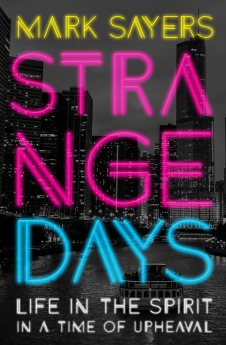 Strange Days: Life in the Spirit in a Time of Upheaval Mark Sayers (Moody Press) $13.99 Unlike the big Goudzwaard & Bartholomew book, this is casual, upbeat, easy to read, filled with personal anecdotes, and is pretty cool, even though it walks us through the unsettling days that are spinning so fast that things seem almost out of control. I respect Sayers, who is very informed by serious reading and deep considerations, but he has a way to communicate (especially younger, energetic readers) that really works. He has a wonderful book on consumerism and hyper-reality called The Trouble with Paris and another exploring the deeper sense of self in our glitzy culture called The Vertical Self. He wrote an insightful book called The Road Trip That Changed the World which is about Jack Kourac and his influential book On the Road. Sayers’s last book was called The Disappearing Church which should be read by anyone curious about the decline of church life in our contemporary culture. Anyway, this new book looks at global stuff a bit, speaks to concerns I know you have such as the fears of international terrorism and radical Islam, and the other forces that cause us to characterize our era as a time of upheaval. If you’ve never read any books about the fast-spinning modern times and the array of social changes that bring anxiety and confusion to most, this is a fine, very interesting book with which to start. He says he “writes from the future” but I think this strangeness is upon us now. I recommend it highly.
Strange Days: Life in the Spirit in a Time of Upheaval Mark Sayers (Moody Press) $13.99 Unlike the big Goudzwaard & Bartholomew book, this is casual, upbeat, easy to read, filled with personal anecdotes, and is pretty cool, even though it walks us through the unsettling days that are spinning so fast that things seem almost out of control. I respect Sayers, who is very informed by serious reading and deep considerations, but he has a way to communicate (especially younger, energetic readers) that really works. He has a wonderful book on consumerism and hyper-reality called The Trouble with Paris and another exploring the deeper sense of self in our glitzy culture called The Vertical Self. He wrote an insightful book called The Road Trip That Changed the World which is about Jack Kourac and his influential book On the Road. Sayers’s last book was called The Disappearing Church which should be read by anyone curious about the decline of church life in our contemporary culture. Anyway, this new book looks at global stuff a bit, speaks to concerns I know you have such as the fears of international terrorism and radical Islam, and the other forces that cause us to characterize our era as a time of upheaval. If you’ve never read any books about the fast-spinning modern times and the array of social changes that bring anxiety and confusion to most, this is a fine, very interesting book with which to start. He says he “writes from the future” but I think this strangeness is upon us now. I recommend it highly.
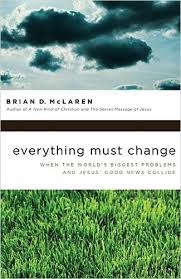 Everything Must Change: When the World’s Biggest Problems and Jesus’ Good News Collide Brian McLaren (Nelson) $14.99 Several years ago Bob Goudzwaard, Mark Vander Vennen, and David Van Heemst, wrote a deep and thoughtful book about the relationship of global poverty, degradation of the environment, and the threat of terrorism and war. It was called Hope for Troubled Times: A New Vision for Confronting Global Crisis and we still carry it and try to sell it to those interested in these global concerns. In a way, HFTT predicted the deeper work found in Beyond the Modern Age as it asked us to understand the faith-like/ideological engine that drives, the fuel that is spent, in the running of the modern world. What convictions and forces keep it going as it does? Can we see the interrelationship of our most pressing social problems and re-frame things in a healing and hopeful way? Well, Brian McLaren read that book and it moved him deeply and it stimulated his own thinking. Inspired by these three authors (which he playfully called the hopesters) he wrote his own version, which is, admittedly, more engaging and clever than Hope for Troubled Times. I really like this book and very highly recommend it.
Everything Must Change: When the World’s Biggest Problems and Jesus’ Good News Collide Brian McLaren (Nelson) $14.99 Several years ago Bob Goudzwaard, Mark Vander Vennen, and David Van Heemst, wrote a deep and thoughtful book about the relationship of global poverty, degradation of the environment, and the threat of terrorism and war. It was called Hope for Troubled Times: A New Vision for Confronting Global Crisis and we still carry it and try to sell it to those interested in these global concerns. In a way, HFTT predicted the deeper work found in Beyond the Modern Age as it asked us to understand the faith-like/ideological engine that drives, the fuel that is spent, in the running of the modern world. What convictions and forces keep it going as it does? Can we see the interrelationship of our most pressing social problems and re-frame things in a healing and hopeful way? Well, Brian McLaren read that book and it moved him deeply and it stimulated his own thinking. Inspired by these three authors (which he playfully called the hopesters) he wrote his own version, which is, admittedly, more engaging and clever than Hope for Troubled Times. I really like this book and very highly recommend it.
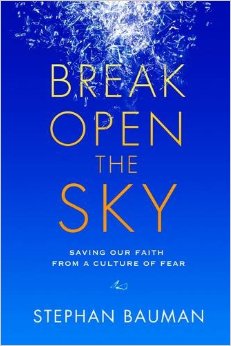 Break Open the Sky: Saving Our Faith from the Culture of Fear Stephan Bauman (Multnomah) $15.99 I had the privilege of having an advanced readers copy of this brand new release and I simply couldn’t put this book down; I hope to revisit it at BookNotes again before long. I think I can say that it is one of the best books I’ve read this year, a study of global pressures, social concern, and why fear seems to grip us in ways that aren’t helpful or faithful. Formerly the director of World Relief, Stephan and his wife have travelled all over the world and the stories here are from brave folks on every continent. This is incisive in its examination of why we are too often unwilling to follow God’s call into the world of need, offering service and faithfulness, and he inspires us gently to care more, understand more, give more of ourselves to be present to the pain and the joy of it all. It ends up being – it doesn’t say this until the end and you then see it – a study of the Beatitudes. What a great book about how to live well in our fearful, complicated, even dangerous times.
Break Open the Sky: Saving Our Faith from the Culture of Fear Stephan Bauman (Multnomah) $15.99 I had the privilege of having an advanced readers copy of this brand new release and I simply couldn’t put this book down; I hope to revisit it at BookNotes again before long. I think I can say that it is one of the best books I’ve read this year, a study of global pressures, social concern, and why fear seems to grip us in ways that aren’t helpful or faithful. Formerly the director of World Relief, Stephan and his wife have travelled all over the world and the stories here are from brave folks on every continent. This is incisive in its examination of why we are too often unwilling to follow God’s call into the world of need, offering service and faithfulness, and he inspires us gently to care more, understand more, give more of ourselves to be present to the pain and the joy of it all. It ends up being – it doesn’t say this until the end and you then see it – a study of the Beatitudes. What a great book about how to live well in our fearful, complicated, even dangerous times.
I respect Ken Wytsma (founder of The Justice Conference) and serious writer, himself. Listen to what he wrote about it:
Rarely do I read something with such deep spiritual analysis, profound insight, and poetic storytelling as Stephan Bauman’s new book Break Open the Sky. For those who think they already know the good news of Christ but still long for more, this short, honest, and beautifully written book is what you have been waiting for. Break Open the Sky is a timeless contribution to Christian and human spirituality.
–Ken Wytsma, president of Kilns College and the author of The Grand Paradox: The Messiness of Life, the Mystery of God and the Necessity of Faith
I like this recommendation blurb by Bill Haley (brother of spiritual formation author Ruth Haley Barton, by the way) who runs a retreat center ministry called Coracle. Bill writes,
In uncertain and anxious times, Break Open the Sky is a critically important book for those who want not just to survive but to thrive. It is for those who want to find joy and power and impact in any season, especially the challenging ones. This is must reading for anyone who wants to go deeper into God and deeper into the real world we live in. This book couldn’t be more timely.”
–Rev. Bill Haley, executive director of Coracle
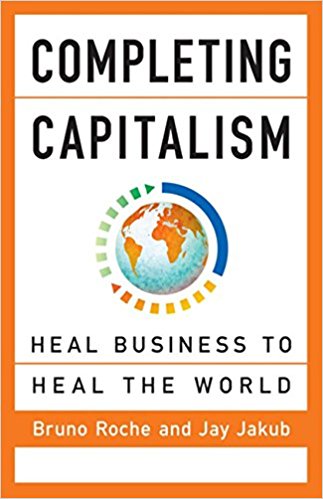 Completing Capitalism: Heal Business to Heal the World Bruno Roche and Jay Jakub (Berrett Koehler) $19.95 I am thrilled to tell you about this and hope to write more about it at BookNotes once I read it more carefully. Completing Capitalism just released and we couldn’t be more eager to have you know about it. Maybe the best way to introduce BookNotes readers to it is to remind you of some of the stories my friend Steve Garber tells in his extraordinary book Visions of Vocation about his work as a fellow on a team working with the Mars Corporation – yes, the family-owned candy company – helping them think through the world of work in that company, he character of modern day agriculture, the nature of business ethics, the vision that might underpin a new way of thinking about profit and corporate sustainability, the integral aspect of social responsibility of the corporation. These two authors – who are respected in high level economic circles, especially in Europe – have forged a manifesto of sorts that takes issue with a singular view of profit-making, insisting that the task and calling of a business, and the rubrics that measure its success, simply has to be about more than money-making. They are not the first or only economists calling for a more multi-dimensional definition of business success (they’ve read Bob Goudzwaard on this, I’m sure) but this book is nonetheless very significant, fleshing out, as it does, what this might look like, even in a corporation like Mars, Inc.
Completing Capitalism: Heal Business to Heal the World Bruno Roche and Jay Jakub (Berrett Koehler) $19.95 I am thrilled to tell you about this and hope to write more about it at BookNotes once I read it more carefully. Completing Capitalism just released and we couldn’t be more eager to have you know about it. Maybe the best way to introduce BookNotes readers to it is to remind you of some of the stories my friend Steve Garber tells in his extraordinary book Visions of Vocation about his work as a fellow on a team working with the Mars Corporation – yes, the family-owned candy company – helping them think through the world of work in that company, he character of modern day agriculture, the nature of business ethics, the vision that might underpin a new way of thinking about profit and corporate sustainability, the integral aspect of social responsibility of the corporation. These two authors – who are respected in high level economic circles, especially in Europe – have forged a manifesto of sorts that takes issue with a singular view of profit-making, insisting that the task and calling of a business, and the rubrics that measure its success, simply has to be about more than money-making. They are not the first or only economists calling for a more multi-dimensional definition of business success (they’ve read Bob Goudzwaard on this, I’m sure) but this book is nonetheless very significant, fleshing out, as it does, what this might look like, even in a corporation like Mars, Inc.
You probably know the unchristian insight of free market guru Milton Friedman who wrote about how greed should, indeed, be our guide in business and how any notion whatsoever of social responsibility for a business (other than making money) is anathema. (That some Christian colleges and think-tanks teach this unbiblical nonsense is beyond me.) You may know the famous line written by the more liberal John Maynard Keynes (which is cited in the Bartholomew/Goudzwaard book) about how the “avarice must be our god a little longer still” as he advised us to continue our admittedly sinful economic ways. Keynes perhaps didn’t think this sort of arrangement was best, but he felt like we needed to continue to serve those false gods. Well, anyway, this obsessive focus on a reductionistic view of the role of profit was a major cause of the abuses that nearly sunk the global economy in 2008, was it not?
Completing Capitalism attempts to re-frame the conversation about what a business is, what meaningful work is, what profit is, what the marketplace is, and how to measure the outcomes of a faithful, sustainable, truly successful business. This line of thought is a true gift.
Here’s what the always eloquent and wise Steve Garber says about it:
As human beings we long for the way the world is supposed to be, even as we make choices against that hope. For years Bruno Roche and Jay Jakub have been hard at work thinking and rethinking the way that business should be and ought to be–if we are to flourish as selves and societies, choosing a future that understands the grain of the universe. With a rare willingness to ask the most critical questions about the nature of business, their ‘economics of mutuality’ is a vision for doing good and doing well in the context of one of the most iconic brands in the modern world. Neither charity nor corporate social responsibility, but rather a way for sustained profitability, Completing Capitalism argues for making money in a way that remembers the meaning of the marketplace.
And listen to what Peter Block says of it:
A major breakthrough on creating an economy that works for all. The thinking is rigorous and backed up by careful research on how mutuality-based practices in social, human, natural, and financial capital can change the economic well-being of society. This work now sets the gold standard for how the private sector can go beyond lip service in making a major positive impact on the world.
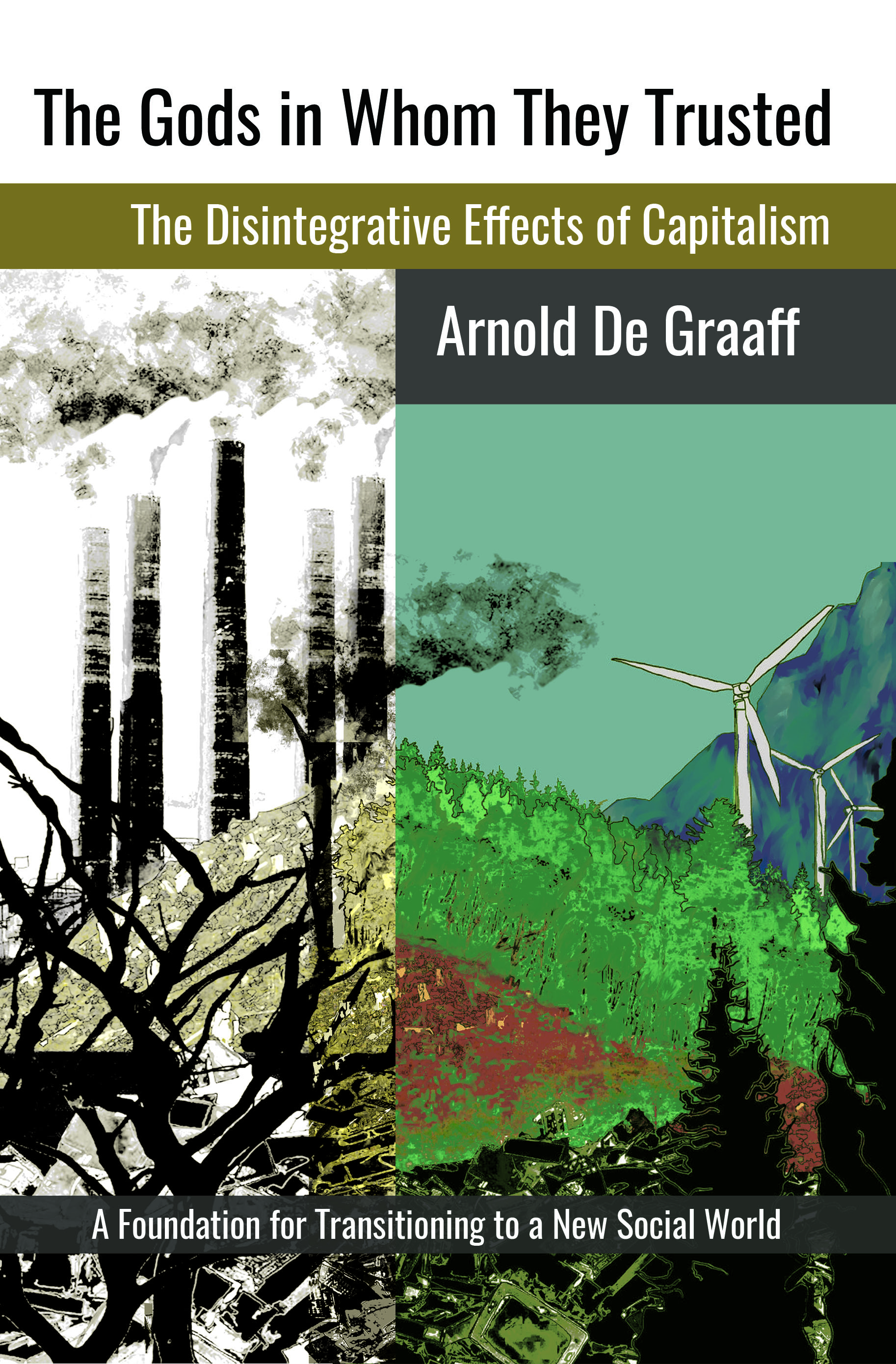 The Gods in Whom They Trusted: A Foundation for Transitioning to a New Social World Arnold De Graaff (Heathwood Press) $37.99 When I first met Goudzwaard in the 1970s he was doing some teaching at the heady grad school in Toronto called ICS, the Institute for Christian Studies. Arnold De Graaf taught there then and, along with James Olthius, brought philosophical anthropology to the interdisciplinary learning community until he left to become a therapist. Although De Graaf continues to work as a psychotherapist (perhaps because he works as a deep psychotherapist) he is very much aware of the deeper cultural forces that hurt us and here he studies in a deep and transformative radical way the social dysfunctions that lead to stuff like the destruction of our land, air, and seas, the global climate change crisis, and systemic violence built in to many of our ways of ordering life. This book is quite new, very thick (just over 900 pages) a project he’s worked on for years, apparently. In the acknowledgements he credits Lambert Zuidervaart’s Artistic Truth: Aesthetics, Discourse, and Imaginative Disclosure which is curious (and reminds me of Goudzwaard and Bartholomew’s fondness for Calvin Seerveld, Zuidervaart’s mentor.) Zuidervaart, by the way, has recently done his own scholarly book on how the study of philosophy might help evoke and social change; see his Religion, Truth, and Social Transformation: Essays in Reformational Philosophy.
The Gods in Whom They Trusted: A Foundation for Transitioning to a New Social World Arnold De Graaff (Heathwood Press) $37.99 When I first met Goudzwaard in the 1970s he was doing some teaching at the heady grad school in Toronto called ICS, the Institute for Christian Studies. Arnold De Graaf taught there then and, along with James Olthius, brought philosophical anthropology to the interdisciplinary learning community until he left to become a therapist. Although De Graaf continues to work as a psychotherapist (perhaps because he works as a deep psychotherapist) he is very much aware of the deeper cultural forces that hurt us and here he studies in a deep and transformative radical way the social dysfunctions that lead to stuff like the destruction of our land, air, and seas, the global climate change crisis, and systemic violence built in to many of our ways of ordering life. This book is quite new, very thick (just over 900 pages) a project he’s worked on for years, apparently. In the acknowledgements he credits Lambert Zuidervaart’s Artistic Truth: Aesthetics, Discourse, and Imaginative Disclosure which is curious (and reminds me of Goudzwaard and Bartholomew’s fondness for Calvin Seerveld, Zuidervaart’s mentor.) Zuidervaart, by the way, has recently done his own scholarly book on how the study of philosophy might help evoke and social change; see his Religion, Truth, and Social Transformation: Essays in Reformational Philosophy.
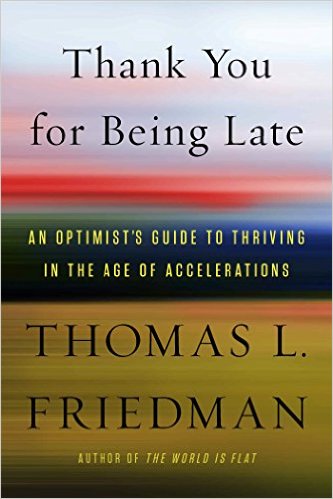 Thank You for Being Late: An Optimist’s Guide to Thriving in the Age of Accelerations Thomas L. Friedman (Farrar, Straus and Giroux) $28.00 Goudzwaard and Bartholomew are quick to suggest reading widely and, although as Christians we should be critical about answers that are too entwined with the very assumptions of Enlightenment rationalism and faith in progress that causes our most intractable global economic problems, it is still valuable to be aware of the world’s leading thinkers. There is no doubt that the often cited, award-winning New York Times columnist is one of these world-class leading thinkers. This is his new collection of pieces, a very engaging and important volume, especially because he is attuned to some of the oddly paradoxical forces of modernity that he describes as “an age of accelerations.” This is a provocative insight and I’d love to hear what Goudzwaard says of this angle. In part, Friedman is concerns about “reconstructing social ties so that people feel respected and welcomed.” This has gotten rave reviews from The Wall Street Journal, Kirkus Reviews, and The New York Times Book Review which said it was his “most ambitious book yet.” That reviewer said “after your session with Dr. Friedman, you have a much better idea of the forces that are upending your world, how they work together, and what people. companies, and governments can do to proser. You’ll have a coherent narrative for why the world is the way it is.” Well, I suspect he hasn’t yet read Beyond the Modern World so I’ll take that line with a grain of salt, but it sure indicates the sweeping and important nature of this recent best-seller. We’re glad to stock it here.
Thank You for Being Late: An Optimist’s Guide to Thriving in the Age of Accelerations Thomas L. Friedman (Farrar, Straus and Giroux) $28.00 Goudzwaard and Bartholomew are quick to suggest reading widely and, although as Christians we should be critical about answers that are too entwined with the very assumptions of Enlightenment rationalism and faith in progress that causes our most intractable global economic problems, it is still valuable to be aware of the world’s leading thinkers. There is no doubt that the often cited, award-winning New York Times columnist is one of these world-class leading thinkers. This is his new collection of pieces, a very engaging and important volume, especially because he is attuned to some of the oddly paradoxical forces of modernity that he describes as “an age of accelerations.” This is a provocative insight and I’d love to hear what Goudzwaard says of this angle. In part, Friedman is concerns about “reconstructing social ties so that people feel respected and welcomed.” This has gotten rave reviews from The Wall Street Journal, Kirkus Reviews, and The New York Times Book Review which said it was his “most ambitious book yet.” That reviewer said “after your session with Dr. Friedman, you have a much better idea of the forces that are upending your world, how they work together, and what people. companies, and governments can do to proser. You’ll have a coherent narrative for why the world is the way it is.” Well, I suspect he hasn’t yet read Beyond the Modern World so I’ll take that line with a grain of salt, but it sure indicates the sweeping and important nature of this recent best-seller. We’re glad to stock it here.
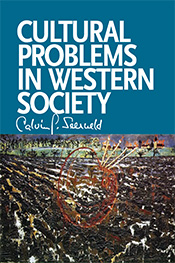 Cultural Problems in Western Society: Sundry Writings and Occasional Lectures Calvin Seerveld (Dordt College Press) $17.99 I did a long, breathy review of Seerveld’s stunning six-part collection of essays, lectures, sermons, papers, and articles, published as a series of “Sundry Writings and Occasional Lectures” when they first came out. Three are about the arts and philosophical aesthetics, one shows forth his remarkable writings about the Bible, and one is mostly about education and the writing of history. This one, Cultural Problems, introduced by Barbara Carvill, looks mostly at European conditions, and some of the essays are, in fact, about the role of artists within the political and economic situations in Europe. Some of these pieces actually cite his good friend Bob Goudzwaard and a few have great resonance with the vision found in Beyond the Modern Age: An Archeology of Contemporary Culture. Some of Seerveld’s dense and colorful chapters were first speeches given to the European Union and a few look at issues such as “Human Multiculturality” and gender justice, and another is on the development of cities which explores “cultural dialogue as a human resource for the integration of Europe.” If you are interested in how serious work on aesthetics and good art can play a healing, helpful role in a broken and injustice society, see another in this six part series of sundry writings, the volume entitled Redemptive Art in Society.
Cultural Problems in Western Society: Sundry Writings and Occasional Lectures Calvin Seerveld (Dordt College Press) $17.99 I did a long, breathy review of Seerveld’s stunning six-part collection of essays, lectures, sermons, papers, and articles, published as a series of “Sundry Writings and Occasional Lectures” when they first came out. Three are about the arts and philosophical aesthetics, one shows forth his remarkable writings about the Bible, and one is mostly about education and the writing of history. This one, Cultural Problems, introduced by Barbara Carvill, looks mostly at European conditions, and some of the essays are, in fact, about the role of artists within the political and economic situations in Europe. Some of these pieces actually cite his good friend Bob Goudzwaard and a few have great resonance with the vision found in Beyond the Modern Age: An Archeology of Contemporary Culture. Some of Seerveld’s dense and colorful chapters were first speeches given to the European Union and a few look at issues such as “Human Multiculturality” and gender justice, and another is on the development of cities which explores “cultural dialogue as a human resource for the integration of Europe.” If you are interested in how serious work on aesthetics and good art can play a healing, helpful role in a broken and injustice society, see another in this six part series of sundry writings, the volume entitled Redemptive Art in Society.
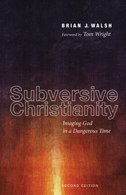 Subversive Christianity: Imaging God in a Dangerous Time Brian J. Walsh (Wipf & Stock) $15.00 When this was re-issued a few years back with a serious new chapter I did a pretty extensive description in BookNotes, and I started it off noting that Brian was friends with Dutch economist Bob Goudzwaard. Which makes me naturally want to list it here, now. I need to trim down what I wrote there, but hopefully my comments captures the energy of the prose itself. Subversive Christianity is a great, great, little book, a powerhouse.
Subversive Christianity: Imaging God in a Dangerous Time Brian J. Walsh (Wipf & Stock) $15.00 When this was re-issued a few years back with a serious new chapter I did a pretty extensive description in BookNotes, and I started it off noting that Brian was friends with Dutch economist Bob Goudzwaard. Which makes me naturally want to list it here, now. I need to trim down what I wrote there, but hopefully my comments captures the energy of the prose itself. Subversive Christianity is a great, great, little book, a powerhouse.
As is clear in the four original chapters, Walsh thinks the true gospel
of God’s Kingdom offers a radical deconstruction of the wrong ideologies
and hurtful ideas and sinful structures that are the idols of our time
and that have facilitated human folly and dysfunction and dis-ease. The reign of God — the journey out of exile and through the desert and towards a new Jerusalem — is the penultimate story (Christ, his Jubilee inauguration speech, his move towards the cross, his passion and resurrection being the ultimate story) which should shape the imaginations and lifestyles of the people of God, and such a drama is truly a subversive message. One cannot build a glad new world, or, more precisely, testify to its promised coming, unless one firstly renounces the grim news of the false gods, deconstructing and resisting the dominant narrative of the American dream and its bankrupt ideals. Which is to say this gospel
story subverts the (ab)normal, frames our lives with new hopes and desires and dreams, which, of course, brings into greater clarity the cost of discipleship. Being counter-intuitive, counter-cultural, subversive, revolutionary, even, is hard. But such a discipleship, grounded in real life and real hope bears fruit in lasting, deep joy (even through shed tears.)
The shift from grief to hope, from Good Friday to Easter, isn’t easy, but it is the arc of the Biblical story, even though too many churches and Christian TV preachers and Christian books don’t push us too deeply to
consider these things. This book helps us with that, immensely so.
In the first pages of Subversive Christianity Walsh confesses to not dealing much with suffering in Transforming Vision and this personal remark is important. Indeed, the third chapter, about
grief and lament, was delivered the night of the death of a dear colleague, an IVCF staff worker at Brock University; again the pathos is palpable, as we lament the human condition, our own souls, and
particularly the sadnesses of a culture bent on war and materialism, led by scholars and leaders who promote false hopes and harmful ideas. This critical demeanor, grounded in grief, is abundantly clear in Walsh’s
feisty insistence that there is a malaise loose in the land, and that it is urgent to name it. And name it he does.
From the false prophecy of uber-conservative intellectual Francis Fukuyama
to the far left politics of Bruce Cockburn, Walsh draws on contemporary
thinkers, artists, ideas and trends, to bring into focus the
fundamentally subversive power of the Biblical texts that erode all
false gods and upset all false hopes. These passionate, playful,
creative, powerful sermons were worth their weight in gold, and became a
life-line for some of us who rarely heard such evangelical faith
proclaimed with such verve and guts. This wasn’t merely Marxist
liberation theology, it wasn’t inspirational humanism or the incipient
social gospel, this was full on evangelical Bible study,
Christ-honoring, stuff. Walsh’s good friend Tom Wright wrote
the foreword, saying it is a “powerful little book.” After extolling his
study of contemporary culture and his patient academic work, Wright
says of Brian, “he has also drunk deeply from biblical theology, and
provides clear and creative exegesis of several passages in a way which
breathes new life into them. Walsh brings together the Bible and the
modern world in a way which is as original as it is compelling.” \
This is exactly right, and these chapters do indeed bring together very
insightful cultural studies and socio-political analysis with
tremendous, exciting Bible exposition.
The first of the four chapters is titled “Imaging God in Babylon” about
which he summarizes, “Christianity is a subversive cultural movement;
the Christian community and worldview conflict; we are called to image
God.” He offers a contextual rehearing of Genesis 1:26 – 28 that is
nothing short of brilliant. I’m sure he thanks Richard Middleton for
some of this, who later went on to write the magisterial Liberating Image: The Imago Dei in Genesis 1
which is now footnoted in the updated edition.
Chapter two is called “Beyond Worldview to Way of Life: A Diagnosis.” Here he
explores the “worldview/way of life gap.” There is a profound diagnosis
of Western culture (by way of Bob Goudzwaard. Here, he invites a truly prophetic response and pushes
us to realize that merely getting a new “worldview” — incanting stuff
against dualism, affirming a wholistic gospel, realizing the connection
between creation/fall/redemption and the like – simply doesn’t seem to
carry the capacity to change lives and lifestyles. This frustrating gap
between a multi-dimensional, Kingdom worldview and the way those who
hold to such broad visions still live in the world – captive? — is
named and explored.
By the way, I think this talk was first delivered at the Jubilee
conference in Pittsburgh.
The third chapter of Subversive… is “Waiting for a Miracle: Christian Grief at the End of History” and, as
you might guess if you followed much-discussed books from those years, he contrasts the then-popular scholar Francis Fukuyma who released The End of History that year at first with Bruce Cockburn’s song inspired by Central American peasants, “Waiting for a Miracle,” but then, surprisingly, in a brilliant section, with the true prophet, Jeremiah. This is a fabulous example of an incisive critique of a
modern scholar and his role in shaping North American political and
economic policy, and then a shift to profound Biblical lament.
It is hard to say which of the chapters in this book is my favorite, but each offer profound insight, and reward repeated readings. And this one is stunning.
The last chapter is “Waiting for a Miracle: Christian Hope at the End of History” (notice the one-word switch in the sub-title.) In this chapter he cites Cockburn’s “pilloried saints” and Jeremiah (again.) I love the
“real estate at the end of history” piece, about the stunt where Jeremiah buys land behind enemy lines, and how Brian uses that as a parable for our times. Wow! He insists we are all still “waiting for a miracle” but this time, with hope, hope that we can embody and live into.
I have to admit when we got the new edition in a week ago, I turned to this chapter first.
This brand new expanded edition offers a new chapter, oddly called a “post script” which offers much more than a post script, but which is a full on, serious piece. This new chapter brings us up-to-date
and is called “Subversive Christianity 22 Years Later.” Here Brian asks “what time was it” and “what time is t?”
Look, I read a lot of books (and many of you do too.) And most of us listen
to a lot of speakers, take in weekly sermons. There is hardly anybody
who writes or preaches like Walsh does, and I am more than happy to
commend this — I am compelled to. It might shock you, you might not
agree, you may be driven to ponder your own faith community and its
cultural accommodation and the maturity of its prophetic imagination. I
know this is touchy stuff, and I don’t mean to sound negative or
critical, but the diagnosis and re-envisioning going on here is so very
useful. You will be better for it, I am sure of it.
Here is the last paragraph of the last page of the new post script, Jeremiah Revisited, so to speak:
Build houses in a culture of homelessness. Plant gardens in polluted and
contested soil. Get married in a culture of sexual consumerism. Make
commitments in a world where we want to always keep our options open.
Multiply in a world of debt. Have children at the end of history. Seek
shalom in a violent world of geo-political conflict and economic
disparity. This is Jeremiah’s word to the exiles. This is Jeremiah’s
subversive word to us. And in this vision we just might see, with
Jeremiah, a future with hope. (Jer. 29:11.) This is what is means to
work and wait for a miracle. This remains at the heart of a subversive
Christianity.
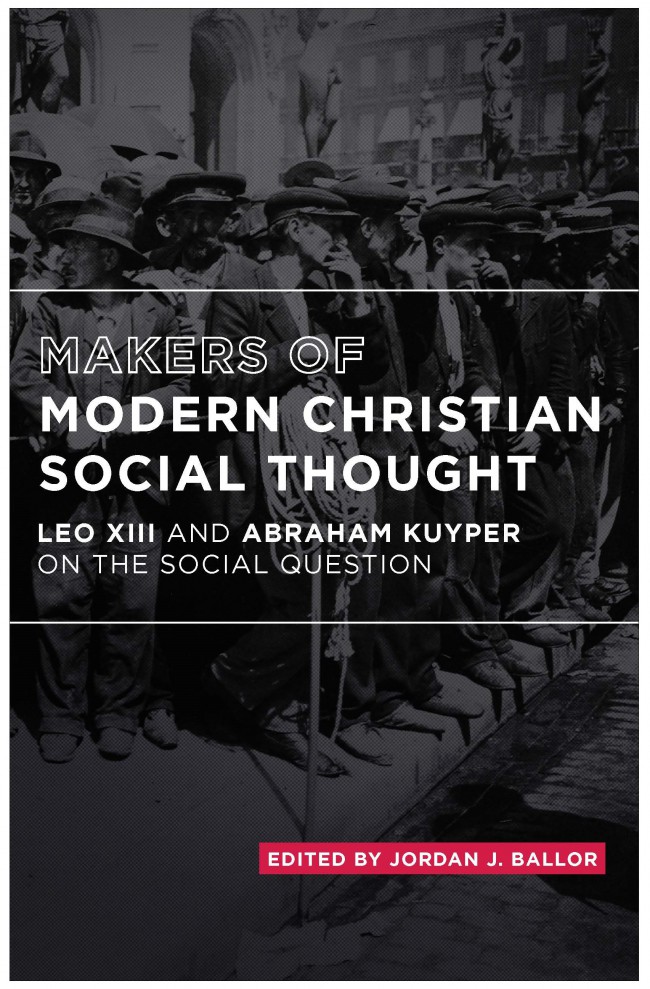 Makers of Modern Christian Social Thought: Leo XIII and Abraham Kuyper on the Social Question Jordan J. Ballor (Acton Institute) $14.95 In my above reflection on how Goudzwaard and Bartholomew draw on so many old (as well as recent) cultural critics I mentioned that they draw on both Kuyper and Pope Leo XIII. Both deserve more credit and discussion then this review allows, and I’m sure both Bartholomew and Goudzwaard would agree that in many ways there are overlapping themes among these two intellectual giants of the late 1800s. Even as the Industrial Revolution was being exposed as a very mixed blessing and danger (with oppression of the working classes, child labor, severe working conditions, and the like) Karl Marx cried out. But his was not the only voice raised against the excesses of unrestrained capitalism, and many Christians talked about “the social question.” In the year of 1891 Pope Leo developed key insights from the Roman Catholic tradition (most powerfully seen in his encyclical Rerum Novarum) and Abraham Kuyper gave his passionate speech “Christianity and the Class Struggle” to The Christian Social Congress. (That Kuyper book has more recently been released under the name The Problem of Poverty.) Ballor (with a PhD from the University of Zurich) knows much about the history of thinking about markets and such, and in this small, meaty paperback he provides a good overview of both of these seminal thinkers as they shaped some consensus between Catholics and Calvinists about the nature of a nuanced, gospel-informed vision of social theory and has a large excerpt of each of the two men’s writings. Ballor’s introductions are very helpful and the primary source material is vital. Very highly recommended.
Makers of Modern Christian Social Thought: Leo XIII and Abraham Kuyper on the Social Question Jordan J. Ballor (Acton Institute) $14.95 In my above reflection on how Goudzwaard and Bartholomew draw on so many old (as well as recent) cultural critics I mentioned that they draw on both Kuyper and Pope Leo XIII. Both deserve more credit and discussion then this review allows, and I’m sure both Bartholomew and Goudzwaard would agree that in many ways there are overlapping themes among these two intellectual giants of the late 1800s. Even as the Industrial Revolution was being exposed as a very mixed blessing and danger (with oppression of the working classes, child labor, severe working conditions, and the like) Karl Marx cried out. But his was not the only voice raised against the excesses of unrestrained capitalism, and many Christians talked about “the social question.” In the year of 1891 Pope Leo developed key insights from the Roman Catholic tradition (most powerfully seen in his encyclical Rerum Novarum) and Abraham Kuyper gave his passionate speech “Christianity and the Class Struggle” to The Christian Social Congress. (That Kuyper book has more recently been released under the name The Problem of Poverty.) Ballor (with a PhD from the University of Zurich) knows much about the history of thinking about markets and such, and in this small, meaty paperback he provides a good overview of both of these seminal thinkers as they shaped some consensus between Catholics and Calvinists about the nature of a nuanced, gospel-informed vision of social theory and has a large excerpt of each of the two men’s writings. Ballor’s introductions are very helpful and the primary source material is vital. Very highly recommended.
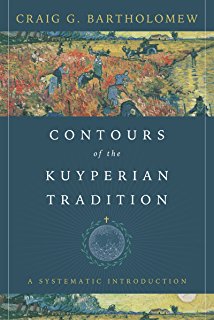 Contours of the Kuyperian Tradition: A Systematic Introduction Craig Bartholomew (IVP Academic) $40.00 I would be remiss not to mention this recent, magisterial, definitive treatment of the theological and social tradition of the great Dutch Reformed thinker and leader, Abraham Kuyper. He was a remarkable figure in the early 1900s and it is significant that Goudzwaard worked within a modern version of Kuyper’s AR political party. There is nothing like this book and it serves as an excellent background book to understand why Bartholomew and Goudzwaard think as they do in Beyond the Modern Age. Some of their insight clearly is in the line of this great Dutch statesman and critic of the French Revolution and although they are exceptionally ecumenical, this reveals their deepest theological tradition. Apart of influence some of this has on Beyond the Modern Age, Contours of the Kuyperian Tradition is certainly one of the most important theological books of the year and should be on the reading list of certainly any Reformed thinkers, and I’d say nearly anyone interested in contemporary theological trends.
Contours of the Kuyperian Tradition: A Systematic Introduction Craig Bartholomew (IVP Academic) $40.00 I would be remiss not to mention this recent, magisterial, definitive treatment of the theological and social tradition of the great Dutch Reformed thinker and leader, Abraham Kuyper. He was a remarkable figure in the early 1900s and it is significant that Goudzwaard worked within a modern version of Kuyper’s AR political party. There is nothing like this book and it serves as an excellent background book to understand why Bartholomew and Goudzwaard think as they do in Beyond the Modern Age. Some of their insight clearly is in the line of this great Dutch statesman and critic of the French Revolution and although they are exceptionally ecumenical, this reveals their deepest theological tradition. Apart of influence some of this has on Beyond the Modern Age, Contours of the Kuyperian Tradition is certainly one of the most important theological books of the year and should be on the reading list of certainly any Reformed thinkers, and I’d say nearly anyone interested in contemporary theological trends.
BookNotes

SPECIAL
DISCOUNT
ANY ITEM MENTIONED
20% off
order here
takes you to the secure Hearts & Minds order form page
just tell us what you want
inquire here
if you have questions or need more information
just ask us what you want to know
Hearts & Minds 234 East Main Street Dallastown, PA 17313
read@heartsandmindsbooks.com
717-246-3333
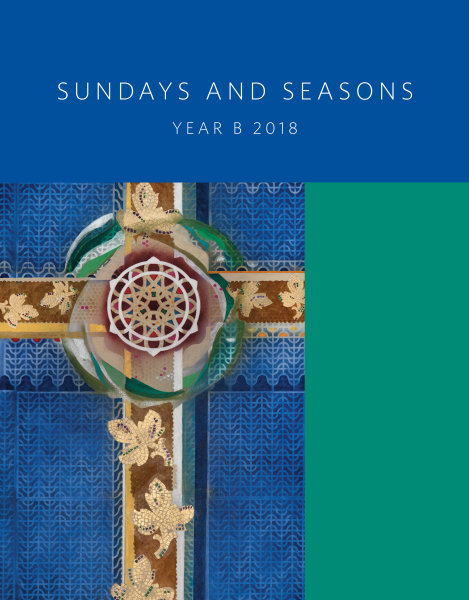
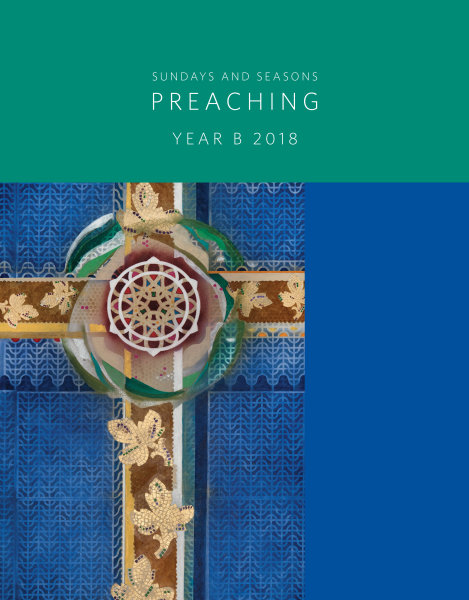 Sundays and Seasons: Guide to Worship Planning Year B 2018 (Augsburg Fortress) $39.00
Sundays and Seasons: Guide to Worship Planning Year B 2018 (Augsburg Fortress) $39.00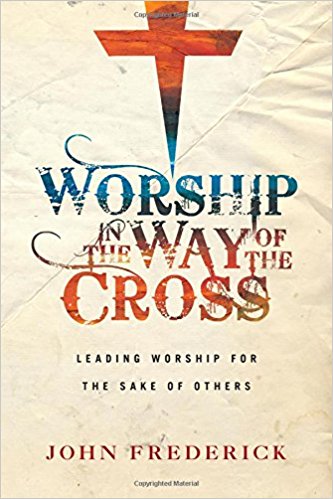 Worship in the Way of the Cross: Leading Worship for the Sake of Others John Frederick (IVP) $18.00 It is not a cheap shot, although it is increasingly said, that “worship” must be more than “just the music, an onstage performance that puts the spotlight on the worship leader.” I know many worship leaders who are essentially musicians who lead songs of praise and they don’t want to be in the spotlight, but the very structure of the worship event puts them there. (In other traditions it is the preacher who is in the center of the up-front activity and the church becomes very preacher-centric.) In any event, whether one is in a hip urban church plant or an old school, denominational preacher in a smaller church, the question of what constitutes artful, high-quality, and theologically faithful worship is pressing. It needs to be revisited regularly, and — given that it is one of the most important and routine things local churches do — I’m surprised that pastors and worship leaders don’t read and study and revisit this topic regularly. Maybe they do, but we don’t sell that many of the oodles of books on worship that we stock, and I wish they sold better. I wish ordinary folks who attend worship and participate would read up a bit on what it’s all about.
Worship in the Way of the Cross: Leading Worship for the Sake of Others John Frederick (IVP) $18.00 It is not a cheap shot, although it is increasingly said, that “worship” must be more than “just the music, an onstage performance that puts the spotlight on the worship leader.” I know many worship leaders who are essentially musicians who lead songs of praise and they don’t want to be in the spotlight, but the very structure of the worship event puts them there. (In other traditions it is the preacher who is in the center of the up-front activity and the church becomes very preacher-centric.) In any event, whether one is in a hip urban church plant or an old school, denominational preacher in a smaller church, the question of what constitutes artful, high-quality, and theologically faithful worship is pressing. It needs to be revisited regularly, and — given that it is one of the most important and routine things local churches do — I’m surprised that pastors and worship leaders don’t read and study and revisit this topic regularly. Maybe they do, but we don’t sell that many of the oodles of books on worship that we stock, and I wish they sold better. I wish ordinary folks who attend worship and participate would read up a bit on what it’s all about.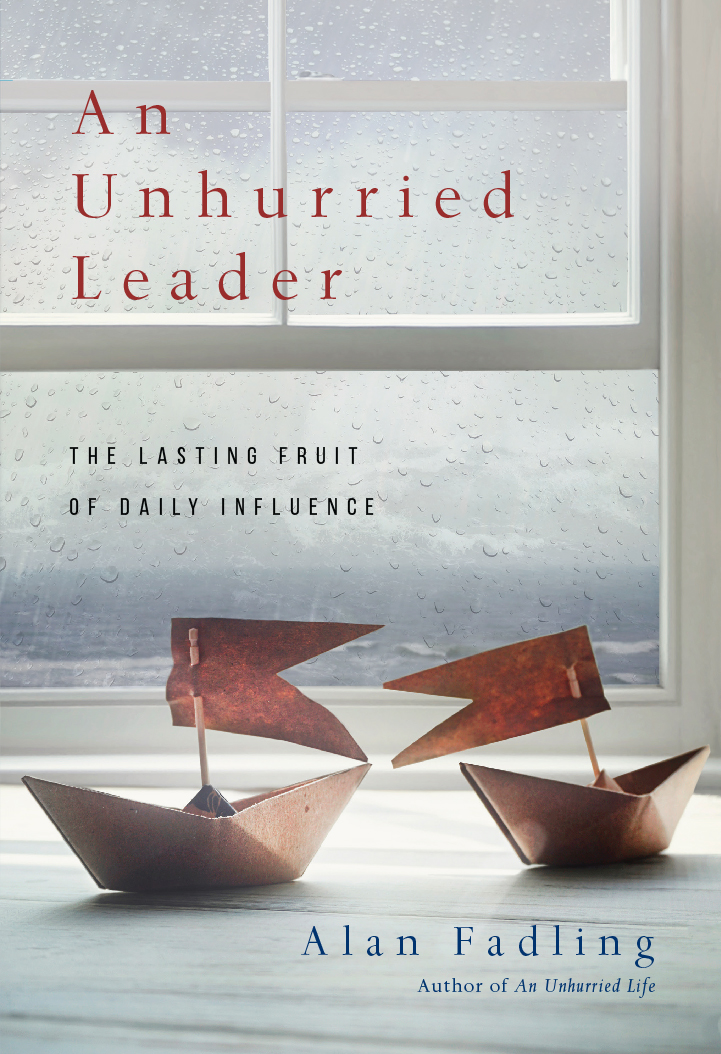 An Unhurried Leader: The Lasting Fruit of Daily Influence Alan Fadling (IVP) $20.00 This is a must read for pastors or other church leaders or anyone involved in ministry, or in leadership of any kind. What a great, great idea for a book, and what a fine writer to do it.
An Unhurried Leader: The Lasting Fruit of Daily Influence Alan Fadling (IVP) $20.00 This is a must read for pastors or other church leaders or anyone involved in ministry, or in leadership of any kind. What a great, great idea for a book, and what a fine writer to do it. 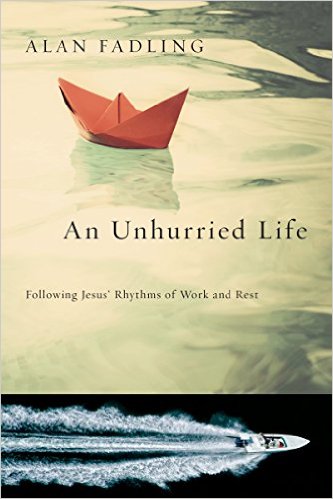 when faced with so many responsibilities and opportunities to do good to “frantically take control of situations in hopes of making good things happen.” Rather, he offers good examples and guidance for alternative ways to lead; as Mindy Caliguire puts in, “to lead from a place of overflow rather than deficit.”
when faced with so many responsibilities and opportunities to do good to “frantically take control of situations in hopes of making good things happen.” Rather, he offers good examples and guidance for alternative ways to lead; as Mindy Caliguire puts in, “to lead from a place of overflow rather than deficit.” 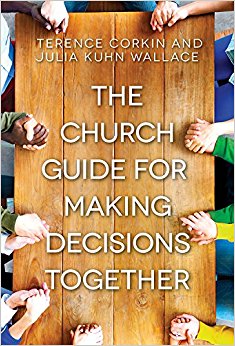 The Church Guide for Making Decisions Together Terence Corkin & Julia Kuhn Wallace (Abingdon Press) $22.99 Allow me to suggest that this is a very, very important book for anyone on a journey to put into place more — what to call it — spiritual ways of being together as the Body of Christ. Much has been written about how the church is not just any institution and we ought not borrow without caution any old strategic plan from the world of business or corporations. We need uniquely Christian spiritual practices to guide and shape us to be the kind of people God desires, and to be in tun with the new work the Holy Spirit is doing in and through us. So, yes, we all know that — even if we are slow to enact fresh ways of doing stuff day by day in our church. I know church polity courses that still teach from Roberts Rules of Order, which, I suppose, isn’t a bad thing, if it is supplemented by organizational practices informed by more faith-based, spiritual disciplines.
The Church Guide for Making Decisions Together Terence Corkin & Julia Kuhn Wallace (Abingdon Press) $22.99 Allow me to suggest that this is a very, very important book for anyone on a journey to put into place more — what to call it — spiritual ways of being together as the Body of Christ. Much has been written about how the church is not just any institution and we ought not borrow without caution any old strategic plan from the world of business or corporations. We need uniquely Christian spiritual practices to guide and shape us to be the kind of people God desires, and to be in tun with the new work the Holy Spirit is doing in and through us. So, yes, we all know that — even if we are slow to enact fresh ways of doing stuff day by day in our church. I know church polity courses that still teach from Roberts Rules of Order, which, I suppose, isn’t a bad thing, if it is supplemented by organizational practices informed by more faith-based, spiritual disciplines.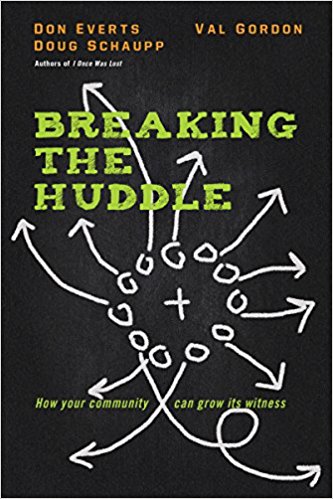 Breaking the Huddle: How Your Community Can Grow Its Witness Don Everts & Doug Schaupp (IVP) $16.00 This is a surprisingly excited book, a really interesting read that is based on some creative research and new descriptions of sorts of communities and stages of faith development within congregational life.
Breaking the Huddle: How Your Community Can Grow Its Witness Don Everts & Doug Schaupp (IVP) $16.00 This is a surprisingly excited book, a really interesting read that is based on some creative research and new descriptions of sorts of communities and stages of faith development within congregational life.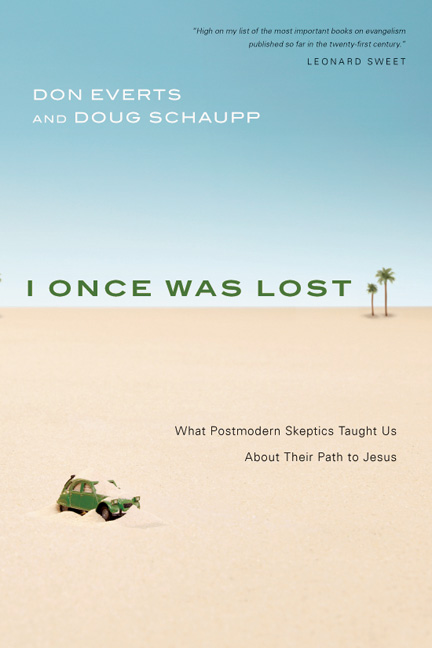 who had come to Christian faith out of an utterly secularized and postmodern background. What were the steps these folks went through to come to a point when the Christian gospel could even be considered as interesting and plausible? What stages did they go through from being disinterested to interested? What were the common paths they took from religiously apathetic (if not out and out skeptical) to becoming a seeker to being one who took the claims of Christ seriously, to actually finding themselves to be Christians? As you might guess, that book documented the role of kind and caring friends that helped seekers navigate these stages of the journey and walked with them towards increasing belief. I Once Was Lost is a one-of-a-kind book and remains a great read for those who are serious about reaching post-Christian young adults with plausible and meaningful and fruitful conversations about deepening faith.
who had come to Christian faith out of an utterly secularized and postmodern background. What were the steps these folks went through to come to a point when the Christian gospel could even be considered as interesting and plausible? What stages did they go through from being disinterested to interested? What were the common paths they took from religiously apathetic (if not out and out skeptical) to becoming a seeker to being one who took the claims of Christ seriously, to actually finding themselves to be Christians? As you might guess, that book documented the role of kind and caring friends that helped seekers navigate these stages of the journey and walked with them towards increasing belief. I Once Was Lost is a one-of-a-kind book and remains a great read for those who are serious about reaching post-Christian young adults with plausible and meaningful and fruitful conversations about deepening faith.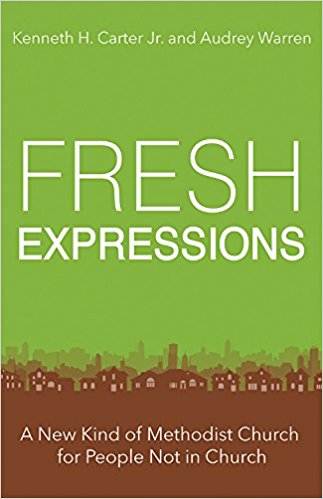 Fresh Expressions: A New Kind of Methodist Church for People Not in Church Kenneth H. Carter Jr. & Audrey Warren (Abingdon Press) $14.99 I’ll say it right away: despite the fact that this has “Methodist” in the subtitle, I truly think it is suitable and valuable for nearly any congregational type. If you are interested in creative outreach, even church planting or para-church ministry, this tells some great stories which you can apply within your own context and theological tradition. I can’t tell you how excited I am that this documents a “wave of new Methodist churches emerging to reach unchurched and dechurched people who live in a culture that is increasingly nonreligious and multi-religious.” And what it is documenting is, in fact, deeply ecumenical. The “Fresh Expressions” movement began in the United Kingdom where it ignited over 3,000 new faith communities.
Fresh Expressions: A New Kind of Methodist Church for People Not in Church Kenneth H. Carter Jr. & Audrey Warren (Abingdon Press) $14.99 I’ll say it right away: despite the fact that this has “Methodist” in the subtitle, I truly think it is suitable and valuable for nearly any congregational type. If you are interested in creative outreach, even church planting or para-church ministry, this tells some great stories which you can apply within your own context and theological tradition. I can’t tell you how excited I am that this documents a “wave of new Methodist churches emerging to reach unchurched and dechurched people who live in a culture that is increasingly nonreligious and multi-religious.” And what it is documenting is, in fact, deeply ecumenical. The “Fresh Expressions” movement began in the United Kingdom where it ignited over 3,000 new faith communities. Welcome to Dinner, Church Verlon Fosner (Seedbed) $9.95 We love the fairly recent publishing house created in affiliation with Asbury Seminary in Kentucky. They do great little books, an array of liturgical, Biblical, and spiritual resources for growing Christians. The Fresh Expressions USA movement has partnered with them to publish some books, and we stock them. This one is quite new, and it was the most popular book we had on sale at the Fresh Expressions conference in Harrisburg that we’ve mentioned. Verlon and his lovely wife were at the event, and although they are from the Pacific Northwest (Seattle, Washington) they have done some helpful church consulting here in Pennsylvania. We are delighted to know them and delighted to tell you about this powerhouse of a little book. It is compact and short and perfect for a small group read.
Welcome to Dinner, Church Verlon Fosner (Seedbed) $9.95 We love the fairly recent publishing house created in affiliation with Asbury Seminary in Kentucky. They do great little books, an array of liturgical, Biblical, and spiritual resources for growing Christians. The Fresh Expressions USA movement has partnered with them to publish some books, and we stock them. This one is quite new, and it was the most popular book we had on sale at the Fresh Expressions conference in Harrisburg that we’ve mentioned. Verlon and his lovely wife were at the event, and although they are from the Pacific Northwest (Seattle, Washington) they have done some helpful church consulting here in Pennsylvania. We are delighted to know them and delighted to tell you about this powerhouse of a little book. It is compact and short and perfect for a small group read. 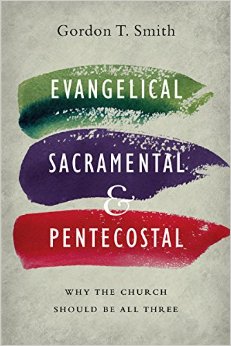 Evangelical Sacramental & Pentecostal: Why the Church Should Be All Three Gordon T. Smith (I(VP) $17.00 I wish I could say more in this short space about how much I value the rich, deep, mature, theological and spiritual writing of evangelical mystic Gordon Smith. He is wise, thoughtful, ecumenical, and I have read almost all of his many good books. (He is now the President of Ambrose University and Seminary in Calgary, Alberta where he also teaches spiritual theology.) He is hard to place as a minister in the Christian Missionary Alliance denomination, but I might suggest that he would appeal to anyone that likes his friends Richard Foster and Eugene Peterson.
Evangelical Sacramental & Pentecostal: Why the Church Should Be All Three Gordon T. Smith (I(VP) $17.00 I wish I could say more in this short space about how much I value the rich, deep, mature, theological and spiritual writing of evangelical mystic Gordon Smith. He is wise, thoughtful, ecumenical, and I have read almost all of his many good books. (He is now the President of Ambrose University and Seminary in Calgary, Alberta where he also teaches spiritual theology.) He is hard to place as a minister in the Christian Missionary Alliance denomination, but I might suggest that he would appeal to anyone that likes his friends Richard Foster and Eugene Peterson.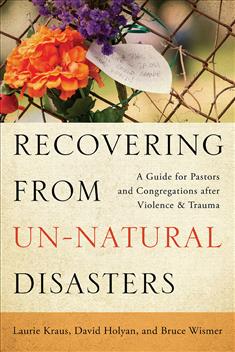 Recovering from Un-Natural Disasters: A Guide for Pastors and Congregations After Violence and Trauma Laurie Kraus, David Holyan, and Bruce Wismer (Westminster John Knox) $20.00 Oh, how sad that we need a resource like this, and oh how great that somebody has compiled such a seasoned and practical guidebook.
Recovering from Un-Natural Disasters: A Guide for Pastors and Congregations After Violence and Trauma Laurie Kraus, David Holyan, and Bruce Wismer (Westminster John Knox) $20.00 Oh, how sad that we need a resource like this, and oh how great that somebody has compiled such a seasoned and practical guidebook. 
 Beyond the Modern Age: An Archaeology of Contemporary Culture by Craig Bartholomew & Bob Goudzwaard (IVP Academic) $35.00 Our sale price $28.00
Beyond the Modern Age: An Archaeology of Contemporary Culture by Craig Bartholomew & Bob Goudzwaard (IVP Academic) $35.00 Our sale price $28.00


 Koyzis and James Skillen) which left its mark in ways that to this day have kept me disenchanted with simple bipolar partisanship. And Goudzwaard’s wise, justice-oriented set of punchy essays Aid for the Overdeveloped West forever (along with Ron Sider’s Rich Christians in an Age of Hunger and Art Simon’s Bread for the World) influenced how I thought about structures and ideologies that shaped and moved our world’s economic arrangements and how such systems are never neutral, but informed by values and priorities that may indicate the presence of false gods and distorted ideologies. These two books reminded me that (just for instance) simple charity is inadequate to fight poverty and simple living and recycling isn’t enough to fight global environmental disasters.
Koyzis and James Skillen) which left its mark in ways that to this day have kept me disenchanted with simple bipolar partisanship. And Goudzwaard’s wise, justice-oriented set of punchy essays Aid for the Overdeveloped West forever (along with Ron Sider’s Rich Christians in an Age of Hunger and Art Simon’s Bread for the World) influenced how I thought about structures and ideologies that shaped and moved our world’s economic arrangements and how such systems are never neutral, but informed by values and priorities that may indicate the presence of false gods and distorted ideologies. These two books reminded me that (just for instance) simple charity is inadequate to fight poverty and simple living and recycling isn’t enough to fight global environmental disasters. 1984 IVP published a controversial and widely discussed book, a small paperback called Idols of Our Time with a forward by Howard Snyder. After its first publisher dropped it, for a while Dordt College Press kept it in print, until it became too outdated, in part due to its discussion of the nuclear arms race between the US and the USSR, the nature of which changed with the collapse of the Soviet Union in those years.) For what it is worth, I helped write one paragraph of that book – my friend Mark Vander Vennen was translating it from the Dutch and he needed a few lines about US arms manufacturers since Goudzwaard’s Dutch version cited European corporations and policies and data. That I helped with a few sentences of one page of Idols of Our Time remains one of the great privileges of my life.
1984 IVP published a controversial and widely discussed book, a small paperback called Idols of Our Time with a forward by Howard Snyder. After its first publisher dropped it, for a while Dordt College Press kept it in print, until it became too outdated, in part due to its discussion of the nuclear arms race between the US and the USSR, the nature of which changed with the collapse of the Soviet Union in those years.) For what it is worth, I helped write one paragraph of that book – my friend Mark Vander Vennen was translating it from the Dutch and he needed a few lines about US arms manufacturers since Goudzwaard’s Dutch version cited European corporations and policies and data. That I helped with a few sentences of one page of Idols of Our Time remains one of the great privileges of my life.
 Strange Days: Life in the Spirit in a Time of Upheaval Mark Sayers (Moody Press) $13.99 Unlike the big Goudzwaard & Bartholomew book, this is casual, upbeat, easy to read, filled with personal anecdotes, and is pretty cool, even though it walks us through the unsettling days that are spinning so fast that things seem almost out of control. I respect Sayers, who is very informed by serious reading and deep considerations, but he has a way to communicate (especially younger, energetic readers) that really works. He has a wonderful book on consumerism and hyper-reality called The Trouble with Paris and another exploring the deeper sense of self in our glitzy culture called The Vertical Self. He wrote an insightful book called The Road Trip That Changed the World which is about Jack Kourac and his influential book On the Road. Sayers’s last book was called The Disappearing Church which should be read by anyone curious about the decline of church life in our contemporary culture. Anyway, this new book looks at global stuff a bit, speaks to concerns I know you have such as the fears of international terrorism and radical Islam, and the other forces that cause us to characterize our era as a time of upheaval. If you’ve never read any books about the fast-spinning modern times and the array of social changes that bring anxiety and confusion to most, this is a fine, very interesting book with which to start. He says he “writes from the future” but I think this strangeness is upon us now. I recommend it highly.
Strange Days: Life in the Spirit in a Time of Upheaval Mark Sayers (Moody Press) $13.99 Unlike the big Goudzwaard & Bartholomew book, this is casual, upbeat, easy to read, filled with personal anecdotes, and is pretty cool, even though it walks us through the unsettling days that are spinning so fast that things seem almost out of control. I respect Sayers, who is very informed by serious reading and deep considerations, but he has a way to communicate (especially younger, energetic readers) that really works. He has a wonderful book on consumerism and hyper-reality called The Trouble with Paris and another exploring the deeper sense of self in our glitzy culture called The Vertical Self. He wrote an insightful book called The Road Trip That Changed the World which is about Jack Kourac and his influential book On the Road. Sayers’s last book was called The Disappearing Church which should be read by anyone curious about the decline of church life in our contemporary culture. Anyway, this new book looks at global stuff a bit, speaks to concerns I know you have such as the fears of international terrorism and radical Islam, and the other forces that cause us to characterize our era as a time of upheaval. If you’ve never read any books about the fast-spinning modern times and the array of social changes that bring anxiety and confusion to most, this is a fine, very interesting book with which to start. He says he “writes from the future” but I think this strangeness is upon us now. I recommend it highly. Everything Must Change: When the World’s Biggest Problems and Jesus’ Good News Collide Brian McLaren (Nelson) $14.99 Several years ago Bob Goudzwaard, Mark Vander Vennen, and David Van Heemst, wrote a deep and thoughtful book about the relationship of global poverty, degradation of the environment, and the threat of terrorism and war. It was called Hope for Troubled Times: A New Vision for Confronting Global Crisis and we still carry it and try to sell it to those interested in these global concerns. In a way, HFTT predicted the deeper work found in Beyond the Modern Age as it asked us to understand the faith-like/ideological engine that drives, the fuel that is spent, in the running of the modern world. What convictions and forces keep it going as it does? Can we see the interrelationship of our most pressing social problems and re-frame things in a healing and hopeful way? Well, Brian McLaren read that book and it moved him deeply and it stimulated his own thinking. Inspired by these three authors (which he playfully called the hopesters) he wrote his own version, which is, admittedly, more engaging and clever than Hope for Troubled Times. I really like this book and very highly recommend it.
Everything Must Change: When the World’s Biggest Problems and Jesus’ Good News Collide Brian McLaren (Nelson) $14.99 Several years ago Bob Goudzwaard, Mark Vander Vennen, and David Van Heemst, wrote a deep and thoughtful book about the relationship of global poverty, degradation of the environment, and the threat of terrorism and war. It was called Hope for Troubled Times: A New Vision for Confronting Global Crisis and we still carry it and try to sell it to those interested in these global concerns. In a way, HFTT predicted the deeper work found in Beyond the Modern Age as it asked us to understand the faith-like/ideological engine that drives, the fuel that is spent, in the running of the modern world. What convictions and forces keep it going as it does? Can we see the interrelationship of our most pressing social problems and re-frame things in a healing and hopeful way? Well, Brian McLaren read that book and it moved him deeply and it stimulated his own thinking. Inspired by these three authors (which he playfully called the hopesters) he wrote his own version, which is, admittedly, more engaging and clever than Hope for Troubled Times. I really like this book and very highly recommend it. Break Open the Sky: Saving Our Faith from the Culture of Fear Stephan Bauman (Multnomah) $15.99 I had the privilege of having an advanced readers copy of this brand new release and I simply couldn’t put this book down; I hope to revisit it at BookNotes again before long. I think I can say that it is one of the best books I’ve read this year, a study of global pressures, social concern, and why fear seems to grip us in ways that aren’t helpful or faithful. Formerly the director of World Relief, Stephan and his wife have travelled all over the world and the stories here are from brave folks on every continent. This is incisive in its examination of why we are too often unwilling to follow God’s call into the world of need, offering service and faithfulness, and he inspires us gently to care more, understand more, give more of ourselves to be present to the pain and the joy of it all. It ends up being – it doesn’t say this until the end and you then see it – a study of the Beatitudes. What a great book about how to live well in our fearful, complicated, even dangerous times.
Break Open the Sky: Saving Our Faith from the Culture of Fear Stephan Bauman (Multnomah) $15.99 I had the privilege of having an advanced readers copy of this brand new release and I simply couldn’t put this book down; I hope to revisit it at BookNotes again before long. I think I can say that it is one of the best books I’ve read this year, a study of global pressures, social concern, and why fear seems to grip us in ways that aren’t helpful or faithful. Formerly the director of World Relief, Stephan and his wife have travelled all over the world and the stories here are from brave folks on every continent. This is incisive in its examination of why we are too often unwilling to follow God’s call into the world of need, offering service and faithfulness, and he inspires us gently to care more, understand more, give more of ourselves to be present to the pain and the joy of it all. It ends up being – it doesn’t say this until the end and you then see it – a study of the Beatitudes. What a great book about how to live well in our fearful, complicated, even dangerous times. Completing Capitalism: Heal Business to Heal the World Bruno Roche and Jay Jakub (Berrett Koehler) $19.95 I am thrilled to tell you about this and hope to write more about it at BookNotes once I read it more carefully. Completing Capitalism just released and we couldn’t be more eager to have you know about it. Maybe the best way to introduce BookNotes readers to it is to remind you of some of the stories my friend Steve Garber tells in his extraordinary book Visions of Vocation about his work as a fellow on a team working with the Mars Corporation – yes, the family-owned candy company – helping them think through the world of work in that company, he character of modern day agriculture, the nature of business ethics, the vision that might underpin a new way of thinking about profit and corporate sustainability, the integral aspect of social responsibility of the corporation. These two authors – who are respected in high level economic circles, especially in Europe – have forged a manifesto of sorts that takes issue with a singular view of profit-making, insisting that the task and calling of a business, and the rubrics that measure its success, simply has to be about more than money-making. They are not the first or only economists calling for a more multi-dimensional definition of business success (they’ve read Bob Goudzwaard on this, I’m sure) but this book is nonetheless very significant, fleshing out, as it does, what this might look like, even in a corporation like Mars, Inc.
Completing Capitalism: Heal Business to Heal the World Bruno Roche and Jay Jakub (Berrett Koehler) $19.95 I am thrilled to tell you about this and hope to write more about it at BookNotes once I read it more carefully. Completing Capitalism just released and we couldn’t be more eager to have you know about it. Maybe the best way to introduce BookNotes readers to it is to remind you of some of the stories my friend Steve Garber tells in his extraordinary book Visions of Vocation about his work as a fellow on a team working with the Mars Corporation – yes, the family-owned candy company – helping them think through the world of work in that company, he character of modern day agriculture, the nature of business ethics, the vision that might underpin a new way of thinking about profit and corporate sustainability, the integral aspect of social responsibility of the corporation. These two authors – who are respected in high level economic circles, especially in Europe – have forged a manifesto of sorts that takes issue with a singular view of profit-making, insisting that the task and calling of a business, and the rubrics that measure its success, simply has to be about more than money-making. They are not the first or only economists calling for a more multi-dimensional definition of business success (they’ve read Bob Goudzwaard on this, I’m sure) but this book is nonetheless very significant, fleshing out, as it does, what this might look like, even in a corporation like Mars, Inc. The Gods in Whom They Trusted: A Foundation for Transitioning to a New Social World Arnold De Graaff (Heathwood Press) $37.99 When I first met Goudzwaard in the 1970s he was doing some teaching at the heady grad school in Toronto called ICS, the Institute for Christian Studies. Arnold De Graaf taught there then and, along with James Olthius, brought philosophical anthropology to the interdisciplinary learning community until he left to become a therapist. Although De Graaf continues to work as a psychotherapist (perhaps because he works as a deep psychotherapist) he is very much aware of the deeper cultural forces that hurt us and here he studies in a deep and transformative radical way the social dysfunctions that lead to stuff like the destruction of our land, air, and seas, the global climate change crisis, and systemic violence built in to many of our ways of ordering life. This book is quite new, very thick (just over 900 pages) a project he’s worked on for years, apparently. In the acknowledgements he credits Lambert Zuidervaart’s Artistic Truth: Aesthetics, Discourse, and Imaginative Disclosure which is curious (and reminds me of Goudzwaard and Bartholomew’s fondness for Calvin Seerveld, Zuidervaart’s mentor.) Zuidervaart, by the way, has recently done his own scholarly book on how the study of philosophy might help evoke and social change; see his Religion, Truth, and Social Transformation: Essays in Reformational Philosophy.
The Gods in Whom They Trusted: A Foundation for Transitioning to a New Social World Arnold De Graaff (Heathwood Press) $37.99 When I first met Goudzwaard in the 1970s he was doing some teaching at the heady grad school in Toronto called ICS, the Institute for Christian Studies. Arnold De Graaf taught there then and, along with James Olthius, brought philosophical anthropology to the interdisciplinary learning community until he left to become a therapist. Although De Graaf continues to work as a psychotherapist (perhaps because he works as a deep psychotherapist) he is very much aware of the deeper cultural forces that hurt us and here he studies in a deep and transformative radical way the social dysfunctions that lead to stuff like the destruction of our land, air, and seas, the global climate change crisis, and systemic violence built in to many of our ways of ordering life. This book is quite new, very thick (just over 900 pages) a project he’s worked on for years, apparently. In the acknowledgements he credits Lambert Zuidervaart’s Artistic Truth: Aesthetics, Discourse, and Imaginative Disclosure which is curious (and reminds me of Goudzwaard and Bartholomew’s fondness for Calvin Seerveld, Zuidervaart’s mentor.) Zuidervaart, by the way, has recently done his own scholarly book on how the study of philosophy might help evoke and social change; see his Religion, Truth, and Social Transformation: Essays in Reformational Philosophy. Thank You for Being Late: An Optimist’s Guide to Thriving in the Age of Accelerations Thomas L. Friedman (Farrar, Straus and Giroux) $28.00 Goudzwaard and Bartholomew are quick to suggest reading widely and, although as Christians we should be critical about answers that are too entwined with the very assumptions of Enlightenment rationalism and faith in progress that causes our most intractable global economic problems, it is still valuable to be aware of the world’s leading thinkers. There is no doubt that the often cited, award-winning New York Times columnist is one of these world-class leading thinkers. This is his new collection of pieces, a very engaging and important volume, especially because he is attuned to some of the oddly paradoxical forces of modernity that he describes as “an age of accelerations.” This is a provocative insight and I’d love to hear what Goudzwaard says of this angle. In part, Friedman is concerns about “reconstructing social ties so that people feel respected and welcomed.” This has gotten rave reviews from The Wall Street Journal, Kirkus Reviews, and The New York Times Book Review which said it was his “most ambitious book yet.” That reviewer said “after your session with Dr. Friedman, you have a much better idea of the forces that are upending your world, how they work together, and what people. companies, and governments can do to proser. You’ll have a coherent narrative for why the world is the way it is.” Well, I suspect he hasn’t yet read Beyond the Modern World so I’ll take that line with a grain of salt, but it sure indicates the sweeping and important nature of this recent best-seller. We’re glad to stock it here.
Thank You for Being Late: An Optimist’s Guide to Thriving in the Age of Accelerations Thomas L. Friedman (Farrar, Straus and Giroux) $28.00 Goudzwaard and Bartholomew are quick to suggest reading widely and, although as Christians we should be critical about answers that are too entwined with the very assumptions of Enlightenment rationalism and faith in progress that causes our most intractable global economic problems, it is still valuable to be aware of the world’s leading thinkers. There is no doubt that the often cited, award-winning New York Times columnist is one of these world-class leading thinkers. This is his new collection of pieces, a very engaging and important volume, especially because he is attuned to some of the oddly paradoxical forces of modernity that he describes as “an age of accelerations.” This is a provocative insight and I’d love to hear what Goudzwaard says of this angle. In part, Friedman is concerns about “reconstructing social ties so that people feel respected and welcomed.” This has gotten rave reviews from The Wall Street Journal, Kirkus Reviews, and The New York Times Book Review which said it was his “most ambitious book yet.” That reviewer said “after your session with Dr. Friedman, you have a much better idea of the forces that are upending your world, how they work together, and what people. companies, and governments can do to proser. You’ll have a coherent narrative for why the world is the way it is.” Well, I suspect he hasn’t yet read Beyond the Modern World so I’ll take that line with a grain of salt, but it sure indicates the sweeping and important nature of this recent best-seller. We’re glad to stock it here. Cultural Problems in Western Society: Sundry Writings and Occasional Lectures Calvin Seerveld (Dordt College Press) $17.99 I did a long, breathy review of Seerveld’s stunning six-part collection of essays, lectures, sermons, papers, and articles, published as a series of “Sundry Writings and Occasional Lectures” when they first came out. Three are about the arts and philosophical aesthetics, one shows forth his remarkable writings about the Bible, and one is mostly about education and the writing of history. This one, Cultural Problems, introduced by Barbara Carvill, looks mostly at European conditions, and some of the essays are, in fact, about the role of artists within the political and economic situations in Europe. Some of these pieces actually cite his good friend Bob Goudzwaard and a few have great resonance with the vision found in Beyond the Modern Age: An Archeology of Contemporary Culture. Some of Seerveld’s dense and colorful chapters were first speeches given to the European Union and a few look at issues such as “Human Multiculturality” and gender justice, and another is on the development of cities which explores “cultural dialogue as a human resource for the integration of Europe.” If you are interested in how serious work on aesthetics and good art can play a healing, helpful role in a broken and injustice society, see another in this six part series of sundry writings, the volume entitled Redemptive Art in Society.
Cultural Problems in Western Society: Sundry Writings and Occasional Lectures Calvin Seerveld (Dordt College Press) $17.99 I did a long, breathy review of Seerveld’s stunning six-part collection of essays, lectures, sermons, papers, and articles, published as a series of “Sundry Writings and Occasional Lectures” when they first came out. Three are about the arts and philosophical aesthetics, one shows forth his remarkable writings about the Bible, and one is mostly about education and the writing of history. This one, Cultural Problems, introduced by Barbara Carvill, looks mostly at European conditions, and some of the essays are, in fact, about the role of artists within the political and economic situations in Europe. Some of these pieces actually cite his good friend Bob Goudzwaard and a few have great resonance with the vision found in Beyond the Modern Age: An Archeology of Contemporary Culture. Some of Seerveld’s dense and colorful chapters were first speeches given to the European Union and a few look at issues such as “Human Multiculturality” and gender justice, and another is on the development of cities which explores “cultural dialogue as a human resource for the integration of Europe.” If you are interested in how serious work on aesthetics and good art can play a healing, helpful role in a broken and injustice society, see another in this six part series of sundry writings, the volume entitled Redemptive Art in Society.  Subversive Christianity: Imaging God in a Dangerous Time Brian J. Walsh (Wipf & Stock) $15.00 When this was re-issued a few years back with a serious new chapter I did a pretty extensive description in BookNotes, and I started it off noting that Brian was friends with Dutch economist Bob Goudzwaard. Which makes me naturally want to list it here, now.
Subversive Christianity: Imaging God in a Dangerous Time Brian J. Walsh (Wipf & Stock) $15.00 When this was re-issued a few years back with a serious new chapter I did a pretty extensive description in BookNotes, and I started it off noting that Brian was friends with Dutch economist Bob Goudzwaard. Which makes me naturally want to list it here, now. Makers of Modern Christian Social Thought: Leo XIII and Abraham Kuyper on the Social Question Jordan J. Ballor (Acton Institute) $14.95 In my above reflection on how Goudzwaard and Bartholomew draw on so many old (as well as recent) cultural critics I mentioned that they draw on both Kuyper and Pope Leo XIII. Both deserve more credit and discussion then this review allows, and I’m sure both Bartholomew and Goudzwaard would agree that in many ways there are overlapping themes among these two intellectual giants of the late 1800s. Even as the Industrial Revolution was being exposed as a very mixed blessing and danger (with oppression of the working classes, child labor, severe working conditions, and the like) Karl Marx cried out. But his was not the only voice raised against the excesses of unrestrained capitalism, and many Christians talked about “the social question.” In the year of 1891 Pope Leo developed key insights from the Roman Catholic tradition (most powerfully seen in his encyclical Rerum Novarum) and Abraham Kuyper gave his passionate speech “Christianity and the Class Struggle” to The Christian Social Congress. (That Kuyper book has more recently been released under the name The Problem of Poverty.) Ballor (with a PhD from the University of Zurich) knows much about the history of thinking about markets and such, and in this small, meaty paperback he provides a good overview of both of these seminal thinkers as they shaped some consensus between Catholics and Calvinists about the nature of a nuanced, gospel-informed vision of social theory and has a large excerpt of each of the two men’s writings. Ballor’s introductions are very helpful and the primary source material is vital. Very highly recommended.
Makers of Modern Christian Social Thought: Leo XIII and Abraham Kuyper on the Social Question Jordan J. Ballor (Acton Institute) $14.95 In my above reflection on how Goudzwaard and Bartholomew draw on so many old (as well as recent) cultural critics I mentioned that they draw on both Kuyper and Pope Leo XIII. Both deserve more credit and discussion then this review allows, and I’m sure both Bartholomew and Goudzwaard would agree that in many ways there are overlapping themes among these two intellectual giants of the late 1800s. Even as the Industrial Revolution was being exposed as a very mixed blessing and danger (with oppression of the working classes, child labor, severe working conditions, and the like) Karl Marx cried out. But his was not the only voice raised against the excesses of unrestrained capitalism, and many Christians talked about “the social question.” In the year of 1891 Pope Leo developed key insights from the Roman Catholic tradition (most powerfully seen in his encyclical Rerum Novarum) and Abraham Kuyper gave his passionate speech “Christianity and the Class Struggle” to The Christian Social Congress. (That Kuyper book has more recently been released under the name The Problem of Poverty.) Ballor (with a PhD from the University of Zurich) knows much about the history of thinking about markets and such, and in this small, meaty paperback he provides a good overview of both of these seminal thinkers as they shaped some consensus between Catholics and Calvinists about the nature of a nuanced, gospel-informed vision of social theory and has a large excerpt of each of the two men’s writings. Ballor’s introductions are very helpful and the primary source material is vital. Very highly recommended. Contours of the Kuyperian Tradition: A Systematic Introduction Craig Bartholomew (IVP Academic) $40.00 I would be remiss not to mention this recent, magisterial, definitive treatment of the theological and social tradition of the great Dutch Reformed thinker and leader, Abraham Kuyper. He was a remarkable figure in the early 1900s and it is significant that Goudzwaard worked within a modern version of Kuyper’s AR political party. There is nothing like this book and it serves as an excellent background book to understand why Bartholomew and Goudzwaard think as they do in Beyond the Modern Age. Some of their insight clearly is in the line of this great Dutch statesman and critic of the French Revolution and although they are exceptionally ecumenical, this reveals their deepest theological tradition. Apart of influence some of this has on Beyond the Modern Age, Contours of the Kuyperian Tradition is certainly one of the most important theological books of the year and should be on the reading list of certainly any Reformed thinkers, and I’d say nearly anyone interested in contemporary theological trends.
Contours of the Kuyperian Tradition: A Systematic Introduction Craig Bartholomew (IVP Academic) $40.00 I would be remiss not to mention this recent, magisterial, definitive treatment of the theological and social tradition of the great Dutch Reformed thinker and leader, Abraham Kuyper. He was a remarkable figure in the early 1900s and it is significant that Goudzwaard worked within a modern version of Kuyper’s AR political party. There is nothing like this book and it serves as an excellent background book to understand why Bartholomew and Goudzwaard think as they do in Beyond the Modern Age. Some of their insight clearly is in the line of this great Dutch statesman and critic of the French Revolution and although they are exceptionally ecumenical, this reveals their deepest theological tradition. Apart of influence some of this has on Beyond the Modern Age, Contours of the Kuyperian Tradition is certainly one of the most important theological books of the year and should be on the reading list of certainly any Reformed thinkers, and I’d say nearly anyone interested in contemporary theological trends.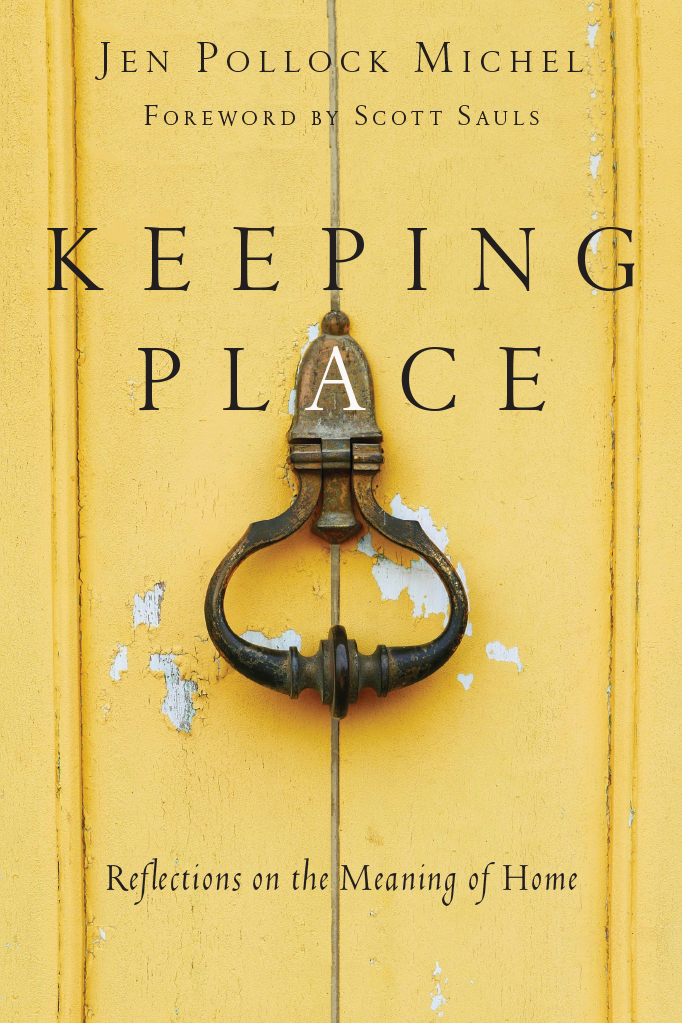
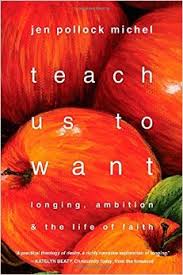
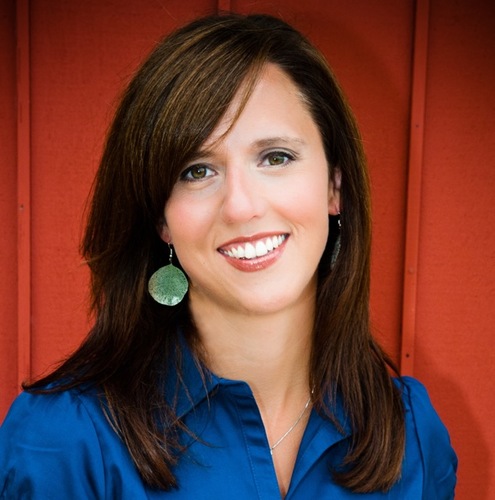
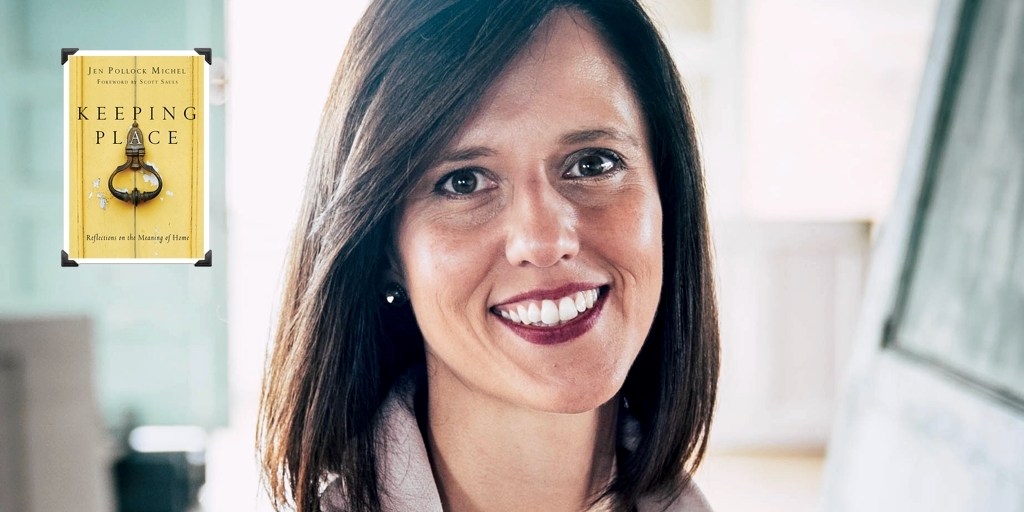
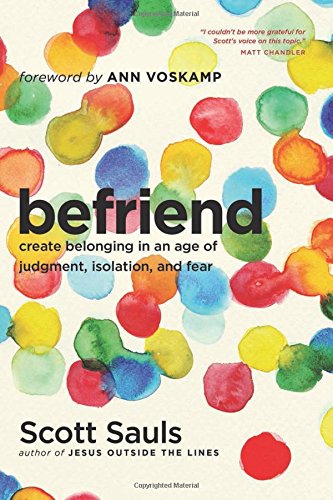
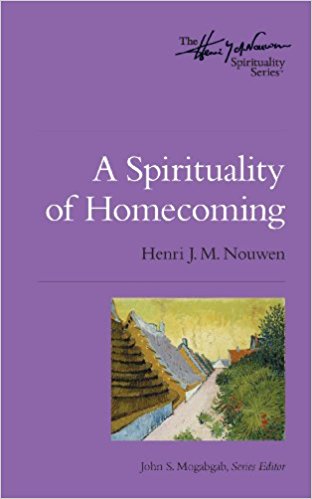 A Spirituality of Homecoming Henri Nouwen (Upper Room Books) $7.99 I hope you know this little one, from the lovely set of 5 small Nouwen books in the “Henri Nouwen Spirituality series” nicely produced by Upper Room. This invites us to respond to the deep love of God that shows us our truest home.
A Spirituality of Homecoming Henri Nouwen (Upper Room Books) $7.99 I hope you know this little one, from the lovely set of 5 small Nouwen books in the “Henri Nouwen Spirituality series” nicely produced by Upper Room. This invites us to respond to the deep love of God that shows us our truest home. 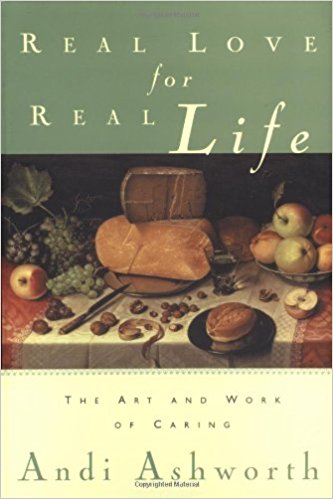 Real Love for Real Life: The Art and Work of Caring Andi Ashworth (Rabbit Room Press) $12.00 One of our very favorite books. It is on the art of home-making, written mostly for woman, but a great read for anyone. I can’t tell you how intelligent and graceful and thoughtful this is. Highly recommended and dearly beloved.
Real Love for Real Life: The Art and Work of Caring Andi Ashworth (Rabbit Room Press) $12.00 One of our very favorite books. It is on the art of home-making, written mostly for woman, but a great read for anyone. I can’t tell you how intelligent and graceful and thoughtful this is. Highly recommended and dearly beloved.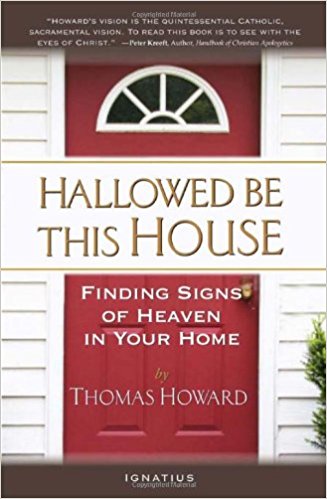 Hallowed Be This House: Finding Signs of Heaven in Your Home Thomas Howard (Ignatius) $14.95 A conservative Roman Catholic walks through the house, seeing signals of transcendence in each room. Very, very, impressive, by a very classy writer you should know.
Hallowed Be This House: Finding Signs of Heaven in Your Home Thomas Howard (Ignatius) $14.95 A conservative Roman Catholic walks through the house, seeing signals of transcendence in each room. Very, very, impressive, by a very classy writer you should know.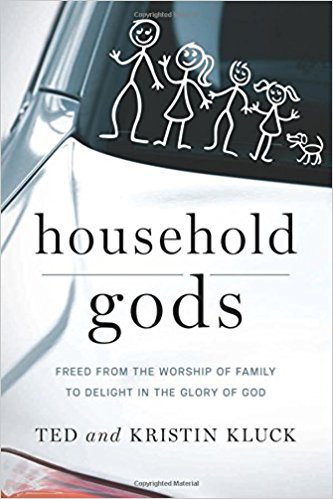 Household Gods: Freed from the Worship of Family to Delight in the Glory of God Ted and Kristin Kluck (NavPress) $14.99 A bold and interesting evangelical writer noting that we have made home and successful family life into an idol that we must break free from.
Household Gods: Freed from the Worship of Family to Delight in the Glory of God Ted and Kristin Kluck (NavPress) $14.99 A bold and interesting evangelical writer noting that we have made home and successful family life into an idol that we must break free from.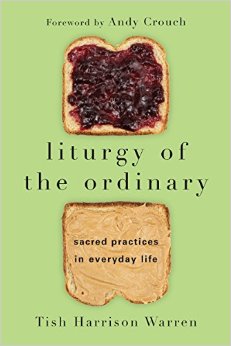 The Liturgy of the Ordinary: Sacred Practices in Everyday Life Tish Harrison Warren (IVP) $16.00 This almost goes without saying, and I hope you don’t find it so obvious to have me list it here — these books are both so very good and it seems that Jen Michel and Tish Warren ought to be fast friends. Besides that they both go by three names, they are smart, deeply interested in the spirituality of the ordinary, and see home and place as a key location for spiritual formation. If you care at all about faithful living, about the “every square inch” vision of God claiming all of life, of exploring this topic of home and place and God and life, this book is without a doubt a must-read. It is beautiful, fun, and so very insightful. Read it in tandem with Keeping Place and you’ll see what I mean. Somebody ordered both of these on line from us the other day and it made my day. Praise be to God.
The Liturgy of the Ordinary: Sacred Practices in Everyday Life Tish Harrison Warren (IVP) $16.00 This almost goes without saying, and I hope you don’t find it so obvious to have me list it here — these books are both so very good and it seems that Jen Michel and Tish Warren ought to be fast friends. Besides that they both go by three names, they are smart, deeply interested in the spirituality of the ordinary, and see home and place as a key location for spiritual formation. If you care at all about faithful living, about the “every square inch” vision of God claiming all of life, of exploring this topic of home and place and God and life, this book is without a doubt a must-read. It is beautiful, fun, and so very insightful. Read it in tandem with Keeping Place and you’ll see what I mean. Somebody ordered both of these on line from us the other day and it made my day. Praise be to God.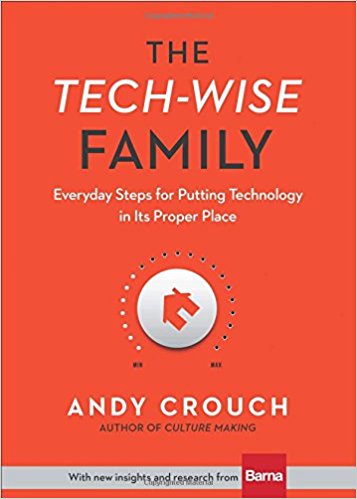 The Tech-Wise Family: Everyday Steps for Putting Technology in Its Proper Place Andy Crouch (Baker) $13.99 If there is one small fault with my first perusal of Keeping Place is that I didn’t notice Jen Michel talking much about the impact of our digital culture on our sense of place or how stability in the home may demand thinking in creative ways about what to make of our virtual realities, screens and devices. Andy Crouch is the perfect guy to help us, here and this is without a doubt the most important book about family life this year. (Yes, I’ll affirm it now: like Keeping Place, Crouch’s Tech-Wise Family will surely be named as one of the Best Books of 2017!) Short and insightful, it offers a gentle critique of our fixation with technology and pushes us towards embodiment, even recommending cooking together, inspired by Father Robert Capon’s glorious theological cookbook, Supper of the Lamb. Want to follow up or read something along-side Jen Michel’s Keeping Place. Read this.
The Tech-Wise Family: Everyday Steps for Putting Technology in Its Proper Place Andy Crouch (Baker) $13.99 If there is one small fault with my first perusal of Keeping Place is that I didn’t notice Jen Michel talking much about the impact of our digital culture on our sense of place or how stability in the home may demand thinking in creative ways about what to make of our virtual realities, screens and devices. Andy Crouch is the perfect guy to help us, here and this is without a doubt the most important book about family life this year. (Yes, I’ll affirm it now: like Keeping Place, Crouch’s Tech-Wise Family will surely be named as one of the Best Books of 2017!) Short and insightful, it offers a gentle critique of our fixation with technology and pushes us towards embodiment, even recommending cooking together, inspired by Father Robert Capon’s glorious theological cookbook, Supper of the Lamb. Want to follow up or read something along-side Jen Michel’s Keeping Place. Read this.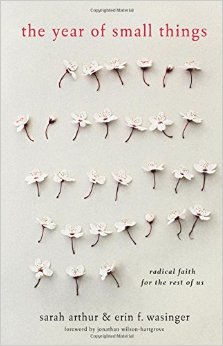 The Year of Small Things: Radical Faith for the Rest of Us Sarah Arthur & Erin F. Wasinger (Brazos Press) $17.99 I so loved this wonderfully written book, and promoted it when it first came out this past Winter. It’s a charming, provocative, expertly crafted, fun and challenging memoir of two families who pledge to support one another as they take baby steps (and some not-so-baby-steps, you may think) to be more faithful, more caring, more committed to the ways of Jesus in this crazy world. What does home-life look like when couples bond in friendship and supportive community to push one another on to do greater things, daily steps of intentional discipleship? This is a great, great book, sure to inspire your own risk-taking baby steps and evoke good conversation among serious Christian friends. Read it and you’ll see why I thought of it while reading Keeping Place.
The Year of Small Things: Radical Faith for the Rest of Us Sarah Arthur & Erin F. Wasinger (Brazos Press) $17.99 I so loved this wonderfully written book, and promoted it when it first came out this past Winter. It’s a charming, provocative, expertly crafted, fun and challenging memoir of two families who pledge to support one another as they take baby steps (and some not-so-baby-steps, you may think) to be more faithful, more caring, more committed to the ways of Jesus in this crazy world. What does home-life look like when couples bond in friendship and supportive community to push one another on to do greater things, daily steps of intentional discipleship? This is a great, great book, sure to inspire your own risk-taking baby steps and evoke good conversation among serious Christian friends. Read it and you’ll see why I thought of it while reading Keeping Place. 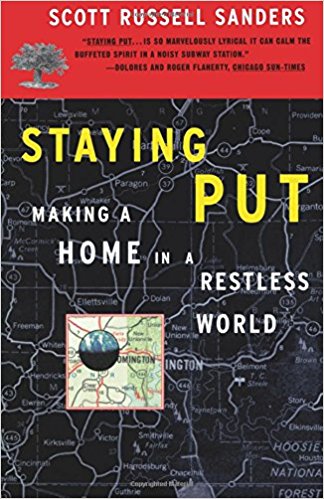 At Home in the World: Reflections on Belonging While Wandering the Globe Tsh Oxenreider (Thomas Nelson) $22.99 What a thrilling memoir of travel; hovering around this fun, new book is the question of how to be at home while away, the tension between settling down and going forth. We sold her earlier, quite classy book Notes from a Blue Bike and she has matured as a writer and offered even wilder adventures, here. As it says on the cover, this is “an adventure across 4 continents, with 3 kids, 1 husband, and 5 backpacks. Really fun.
At Home in the World: Reflections on Belonging While Wandering the Globe Tsh Oxenreider (Thomas Nelson) $22.99 What a thrilling memoir of travel; hovering around this fun, new book is the question of how to be at home while away, the tension between settling down and going forth. We sold her earlier, quite classy book Notes from a Blue Bike and she has matured as a writer and offered even wilder adventures, here. As it says on the cover, this is “an adventure across 4 continents, with 3 kids, 1 husband, and 5 backpacks. Really fun.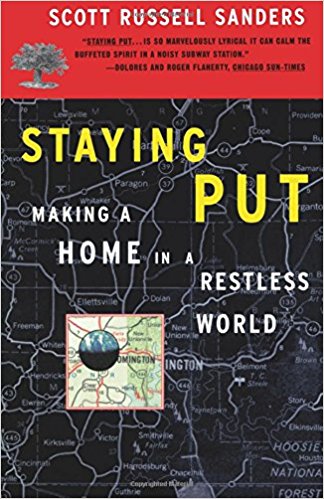 Staying Put: Making a Home in a Restless World Scott Russell Sanders (Beacon) $19.95 One of the truly great American writers, a delightful and moving set of literary essays about home. Imagine if Wendell Berry was a lived not on a farm in Kentucky but in a small town in the Mid-West.
Staying Put: Making a Home in a Restless World Scott Russell Sanders (Beacon) $19.95 One of the truly great American writers, a delightful and moving set of literary essays about home. Imagine if Wendell Berry was a lived not on a farm in Kentucky but in a small town in the Mid-West.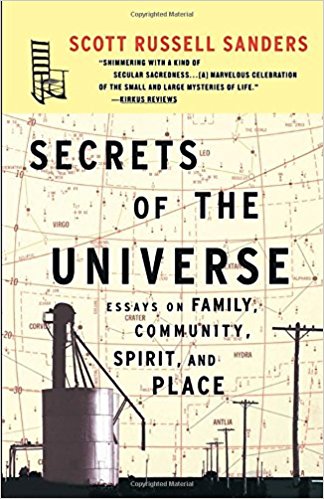 Secrets of the Universe: Essays on Family, Community, Spirit and Place Scott Russell Sanders (Beacon) $18.00 Another remarkable book by the esteemed Mid-Western memoirist. I hope you know this author. Don’t miss it. One reviewer (editor of the Best American Essays) says “Scott Sanders knows in his bones what it means to write the personal essay: it means to take risks. These are personal essays in the best sense of personal — candid, intimate, thoughtful, individual.”
Secrets of the Universe: Essays on Family, Community, Spirit and Place Scott Russell Sanders (Beacon) $18.00 Another remarkable book by the esteemed Mid-Western memoirist. I hope you know this author. Don’t miss it. One reviewer (editor of the Best American Essays) says “Scott Sanders knows in his bones what it means to write the personal essay: it means to take risks. These are personal essays in the best sense of personal — candid, intimate, thoughtful, individual.”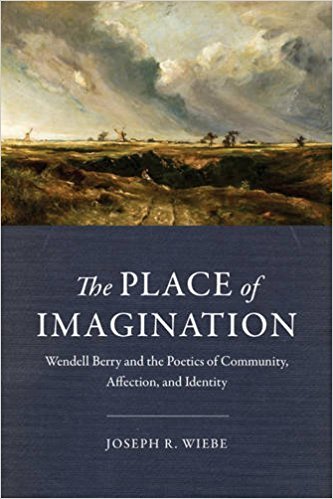
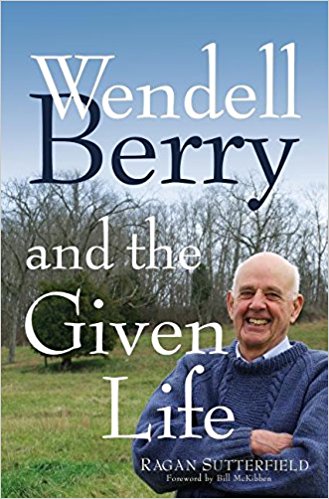 The Place of Imagination: Wendell Berry and the Poetics of Community, Affection, and Identity Joseph Wiebe (Baylor University Press) Well, there are any number of important studies of Berry’s fiction, poetry, and non-fiction, and this hones in on his affection for place. Seriously, this is a major bit of literary criticism, incredibly well documented from Berry’s work. Less pricey and more accessible, see, of course, the great new overview of Berry by Ragan Sutterfield called Wendell Berry and the Given Life (Franciscan Media; $22.99.) What a beautiful, insightful, truly valuable book!
The Place of Imagination: Wendell Berry and the Poetics of Community, Affection, and Identity Joseph Wiebe (Baylor University Press) Well, there are any number of important studies of Berry’s fiction, poetry, and non-fiction, and this hones in on his affection for place. Seriously, this is a major bit of literary criticism, incredibly well documented from Berry’s work. Less pricey and more accessible, see, of course, the great new overview of Berry by Ragan Sutterfield called Wendell Berry and the Given Life (Franciscan Media; $22.99.) What a beautiful, insightful, truly valuable book!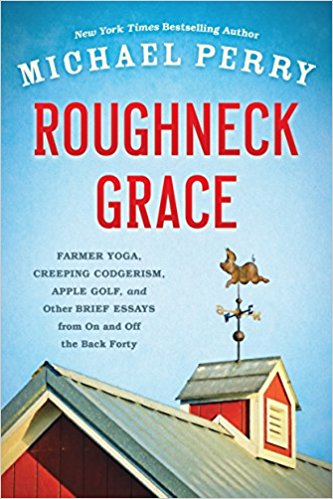 Roughneck Grace: Farmer Yoga, Creeping Codgerism, Apple Golf, and Other Brief Essays from On and Off the Back Forty Michael Perry (Wisconsin Historical Society) $18.95 Beth and I both have agreed this is our favorite book these days, so nicely, nicely written, with so many clever (ad hilarious) turns of phrases, warm and earnest and profound, in a roughneck sort of way. It is a wonder. Short pieces about the author’s Wisconsin life which is not quite a farming one, even if he does have a back forty, tractors and some chickens, sometimes. Wholesome, funny, and so darn interesting. Read his larger books, from Population 485 to Coop to Truck and the essay collection Off Main Street, and more. You’ll thank us with a big ol’ country smile.
Roughneck Grace: Farmer Yoga, Creeping Codgerism, Apple Golf, and Other Brief Essays from On and Off the Back Forty Michael Perry (Wisconsin Historical Society) $18.95 Beth and I both have agreed this is our favorite book these days, so nicely, nicely written, with so many clever (ad hilarious) turns of phrases, warm and earnest and profound, in a roughneck sort of way. It is a wonder. Short pieces about the author’s Wisconsin life which is not quite a farming one, even if he does have a back forty, tractors and some chickens, sometimes. Wholesome, funny, and so darn interesting. Read his larger books, from Population 485 to Coop to Truck and the essay collection Off Main Street, and more. You’ll thank us with a big ol’ country smile. 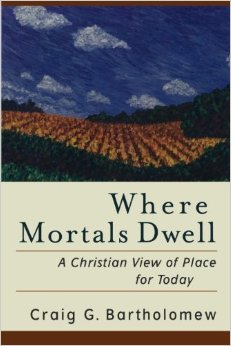 Where Mortals Dwell: A Christian View of Place for Today Craig Bartholomew (Baker Academic) $32.00 I’m glad Jen Pollock Michel cites this a time or two as it is the definitive theological study on place. As we said in our BookNotes review when it first came out, it includes history, philosophy, theology, geography, all in an extraordinary bit of scholarly enrichment from what some call a reformational worldview. There is nothing like it in print, extraordinary. Bartholomew, by the way, recentlly did a major work on Kuyperian theology, and has a brand new one coming co-written by Bob Goudzwaar, Beyond the Modern Age. Genius.
Where Mortals Dwell: A Christian View of Place for Today Craig Bartholomew (Baker Academic) $32.00 I’m glad Jen Pollock Michel cites this a time or two as it is the definitive theological study on place. As we said in our BookNotes review when it first came out, it includes history, philosophy, theology, geography, all in an extraordinary bit of scholarly enrichment from what some call a reformational worldview. There is nothing like it in print, extraordinary. Bartholomew, by the way, recentlly did a major work on Kuyperian theology, and has a brand new one coming co-written by Bob Goudzwaar, Beyond the Modern Age. Genius. No Home Like Place: A Christian Theology of Place Leonard Hjalmarson (Urban Loft Publishing) $18.99 If one is not ready yet to tackle the must-read Where Mortals Dwell this is a bit more accessible and has a few more moments that make it passionately clear why we should care about this topic. Explored through the lens of neighborhood-ish missional church outreach, it is urgent and very, very good. To “keep place” as Pollock Michel invites us to do in our home-life, we simply must think about this bigger sense of place.
No Home Like Place: A Christian Theology of Place Leonard Hjalmarson (Urban Loft Publishing) $18.99 If one is not ready yet to tackle the must-read Where Mortals Dwell this is a bit more accessible and has a few more moments that make it passionately clear why we should care about this topic. Explored through the lens of neighborhood-ish missional church outreach, it is urgent and very, very good. To “keep place” as Pollock Michel invites us to do in our home-life, we simply must think about this bigger sense of place.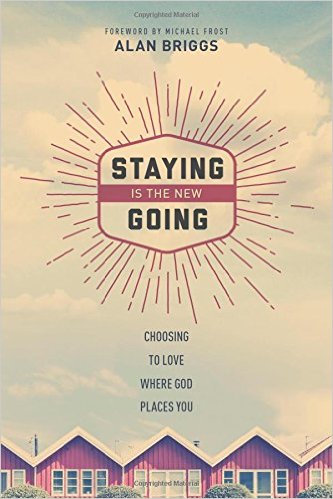 Staying is the New Going: Choosing to Love Where God Places You Alan Briggs (NavPress) $14.99 I have said that the forward by Michael Frost on two kinds of American literature (staying vs going) is itself worth the price of the book, but Briggs does such a good job making this topic so interesting, I sometimes say this is the first book to read if one is approaching the topic of place. Very inspiring, full of insight and charm and, frankly, is a transformational book. Can we learn to love where God has put us? Game-changing!
Staying is the New Going: Choosing to Love Where God Places You Alan Briggs (NavPress) $14.99 I have said that the forward by Michael Frost on two kinds of American literature (staying vs going) is itself worth the price of the book, but Briggs does such a good job making this topic so interesting, I sometimes say this is the first book to read if one is approaching the topic of place. Very inspiring, full of insight and charm and, frankly, is a transformational book. Can we learn to love where God has put us? Game-changing!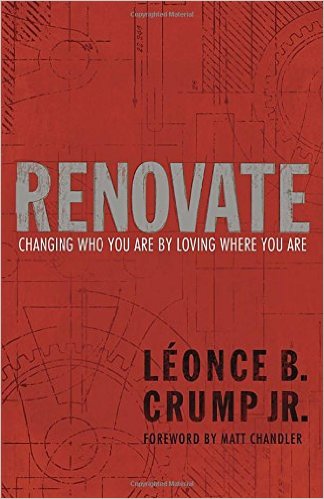 Renovate: Changing Who You Are By Loving Where You Are Leonce Crump (Multnomah) $14.99 I have touted this nearly everywhere we’ve gone this past yea; it is a passionate, Biblically-solid study of why place matters in the Biblical narrative, how God’s promises to restore the whole of creation, and showing you how that can inform your affection for your own places. And what can happen as we are transformed by learning to love well. Crump tells some of his own story of allowing God to transform his attitude as he fall in love with his new home in Atlanta Georgia. Very highly recommended!
Renovate: Changing Who You Are By Loving Where You Are Leonce Crump (Multnomah) $14.99 I have touted this nearly everywhere we’ve gone this past yea; it is a passionate, Biblically-solid study of why place matters in the Biblical narrative, how God’s promises to restore the whole of creation, and showing you how that can inform your affection for your own places. And what can happen as we are transformed by learning to love well. Crump tells some of his own story of allowing God to transform his attitude as he fall in love with his new home in Atlanta Georgia. Very highly recommended!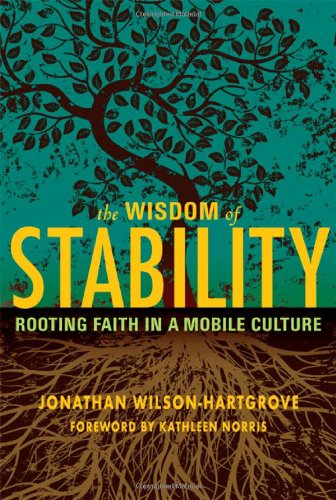 The Wisdom of Stability: Rooting Faith in a Mobile Culture Jonathan Wilson-Hartgrove (Paraclete Press) $16.99 Perhaps you will recall a list of books I developed that would supplement or be in conversation with discussions of Rod Dreher’s The Benedict Option, a list about Saint Benedict and his famous monastic rule, mostly. I wrote about this, as I do whenever I can, as it is a rich, thoughtful, stimulating and highly regarded meditation on the notion from Benedict that a good life comes from staying put, the virtue of “stability.” In a mobile culture where we don’t commit to a place (let alone a group of people) it is hard to be church, to develop roots, to live well. This book is a very fine, enriching rumination with a nice foreword by Kathleen Norris.
The Wisdom of Stability: Rooting Faith in a Mobile Culture Jonathan Wilson-Hartgrove (Paraclete Press) $16.99 Perhaps you will recall a list of books I developed that would supplement or be in conversation with discussions of Rod Dreher’s The Benedict Option, a list about Saint Benedict and his famous monastic rule, mostly. I wrote about this, as I do whenever I can, as it is a rich, thoughtful, stimulating and highly regarded meditation on the notion from Benedict that a good life comes from staying put, the virtue of “stability.” In a mobile culture where we don’t commit to a place (let alone a group of people) it is hard to be church, to develop roots, to live well. This book is a very fine, enriching rumination with a nice foreword by Kathleen Norris. Beyond Homelessness: Christian Faith in a Culture of Displacement Brian Walsh & Steven Bouma-Prediger (Eerdmans) $29.00 Oh my, I mentioned this above, and really meant it — it is an amazing work about a sense of place, about the motifs of exile and homecoming in Scripture, and how that might influence our own sense of calling to the task of radical home-making, being stewards of God’s home, here on Earth. If redemption is a coming home to a restored Eden, then environmental stewardship and water-shed attentive sorts of discipleship is of utmost importance, preparing now and pointing the way to a renewal of our creational home. This book is very serious and one of the most important volumes I’ve ever read. Order it today to study seriously what it means to be at home and to be a home-maker in a culture that does not value such things. Or consider it a studious follow-up to the splendor of Pollock Michel’s beautiful Keeping Place.
Beyond Homelessness: Christian Faith in a Culture of Displacement Brian Walsh & Steven Bouma-Prediger (Eerdmans) $29.00 Oh my, I mentioned this above, and really meant it — it is an amazing work about a sense of place, about the motifs of exile and homecoming in Scripture, and how that might influence our own sense of calling to the task of radical home-making, being stewards of God’s home, here on Earth. If redemption is a coming home to a restored Eden, then environmental stewardship and water-shed attentive sorts of discipleship is of utmost importance, preparing now and pointing the way to a renewal of our creational home. This book is very serious and one of the most important volumes I’ve ever read. Order it today to study seriously what it means to be at home and to be a home-maker in a culture that does not value such things. Or consider it a studious follow-up to the splendor of Pollock Michel’s beautiful Keeping Place.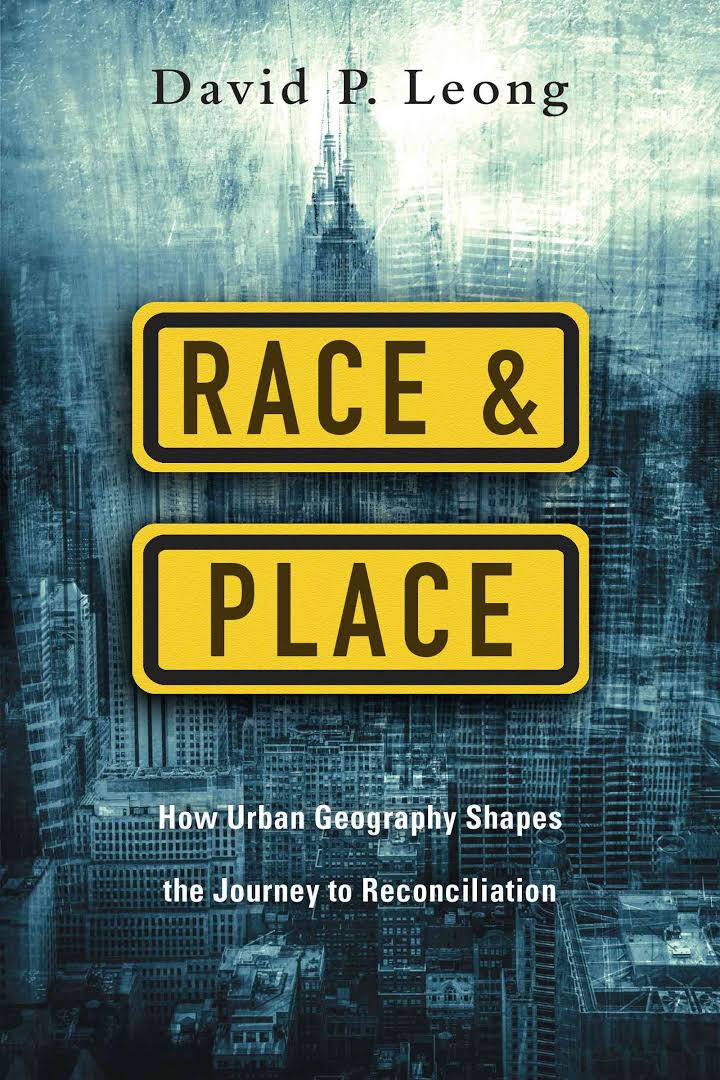 Race and Place: How Urban Geography Shapes the Journey to Reconciliation David Leong (IVP) $16.00 It is simply not true that it is new agronomists or rural folks that develop a sense of place, and although a few of the above writers are small town or rural, some, above, are not. (Oh, please read Renovate, mentioned above by my acquaintance Leonce Crump, an urban, black pastor who cites Wendell Berry!) Not only is it a myth that those who care about place are quaint and rural, it is, as a matter of fact, simply not true that all African American’s in North America are urban. (Hey, I’ve had some great conversation about fishing with black men and women!) Anyway, having said that, it does seem that Jen Pollock’s book doesn’t speak much about race and racism, a topic that is deeply entwined with American geography. This fine book, which I reviewed favorably when it came out a few months ago, is the book to read to bring a reorganization of the relationship of race and place. What a rare voice, what an important contribution. This book works well, and serves readers with insight on various levels on several topics. A win, win, win, they say, well worth having.
Race and Place: How Urban Geography Shapes the Journey to Reconciliation David Leong (IVP) $16.00 It is simply not true that it is new agronomists or rural folks that develop a sense of place, and although a few of the above writers are small town or rural, some, above, are not. (Oh, please read Renovate, mentioned above by my acquaintance Leonce Crump, an urban, black pastor who cites Wendell Berry!) Not only is it a myth that those who care about place are quaint and rural, it is, as a matter of fact, simply not true that all African American’s in North America are urban. (Hey, I’ve had some great conversation about fishing with black men and women!) Anyway, having said that, it does seem that Jen Pollock’s book doesn’t speak much about race and racism, a topic that is deeply entwined with American geography. This fine book, which I reviewed favorably when it came out a few months ago, is the book to read to bring a reorganization of the relationship of race and place. What a rare voice, what an important contribution. This book works well, and serves readers with insight on various levels on several topics. A win, win, win, they say, well worth having.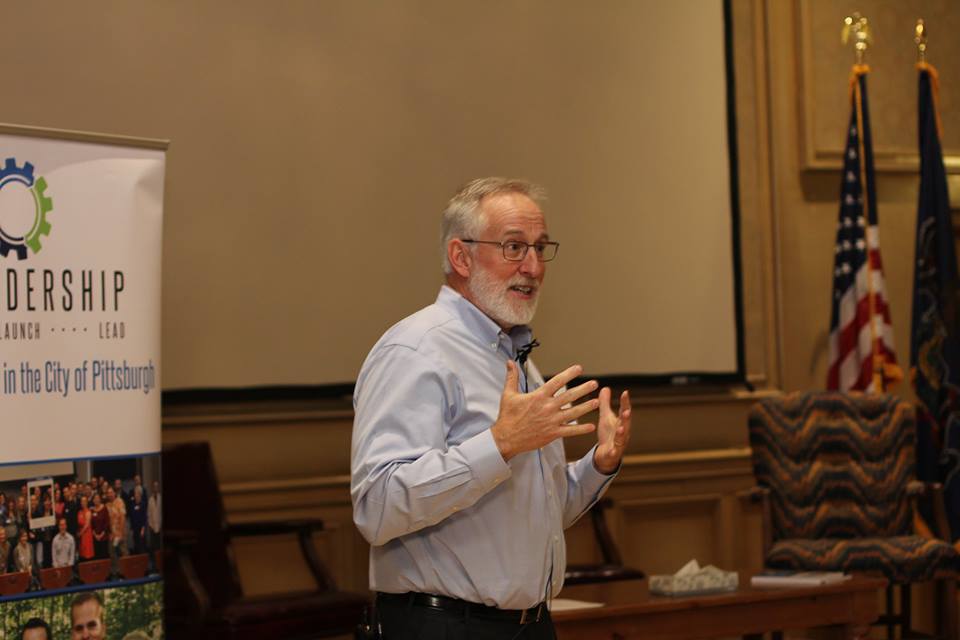
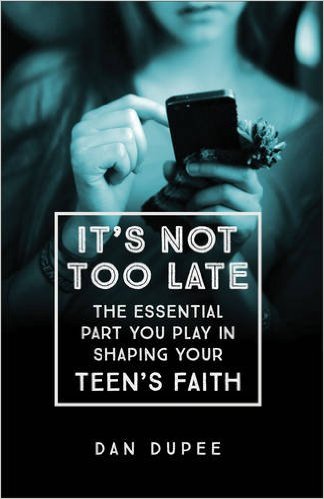
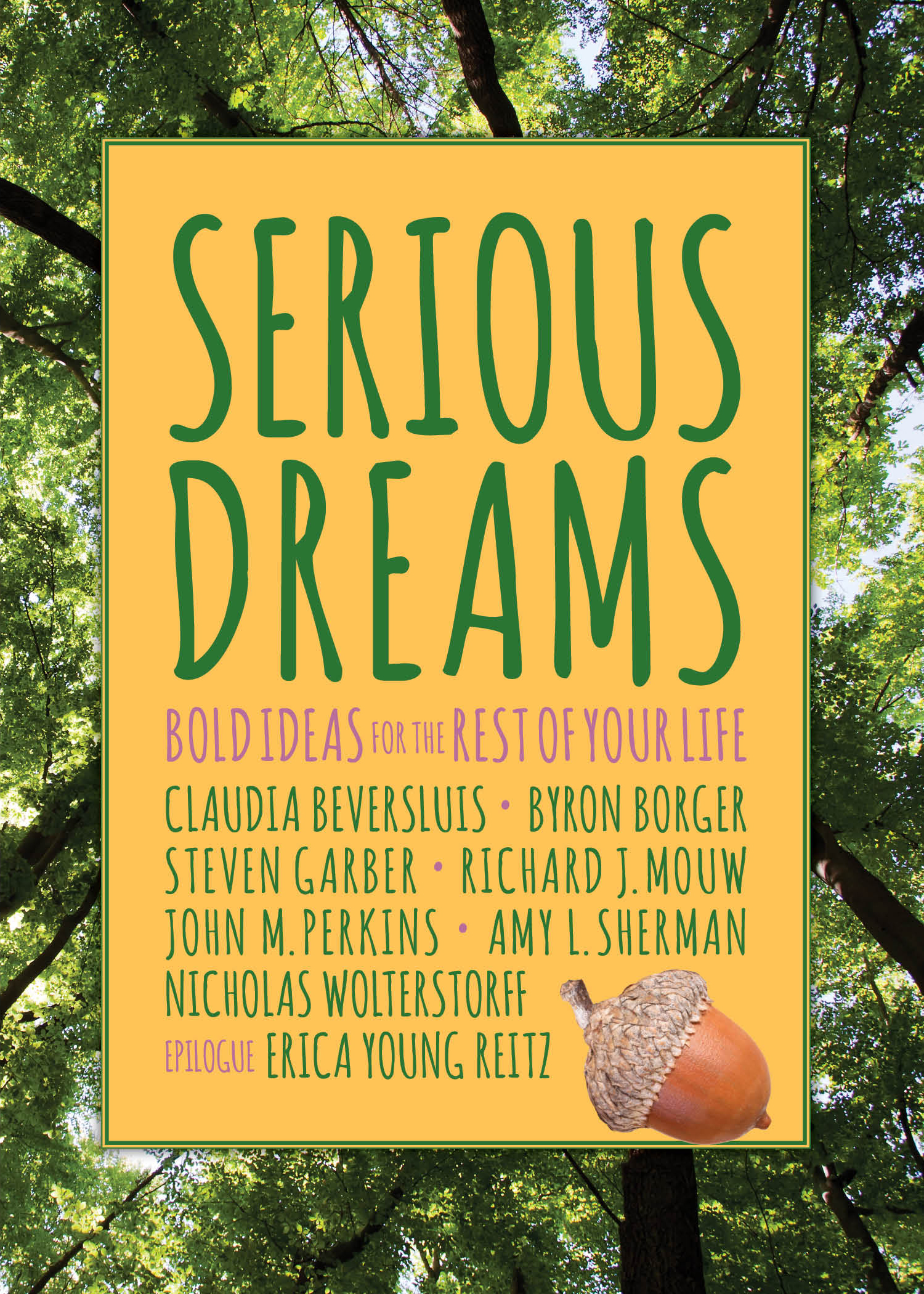
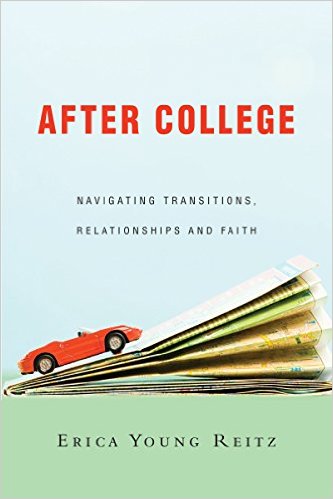
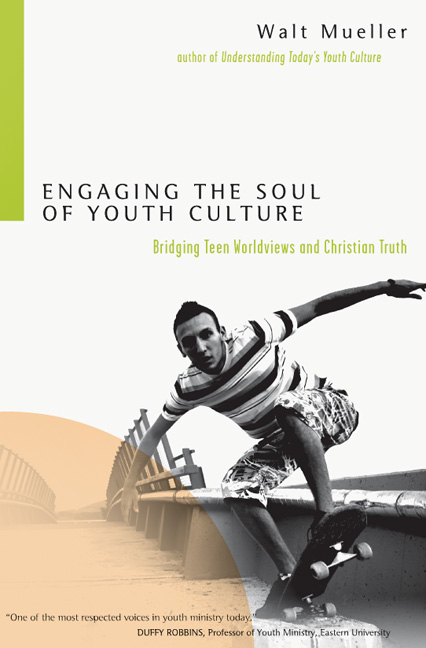
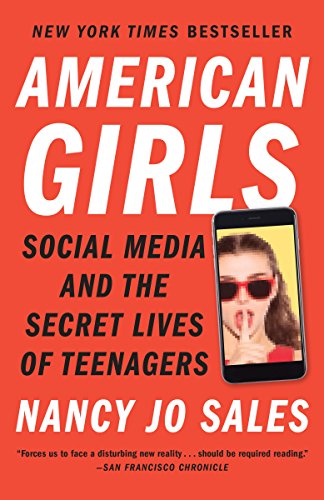 seminary professors such as Kenda Creasy Dean (Almost Christian
seminary professors such as Kenda Creasy Dean (Almost Christian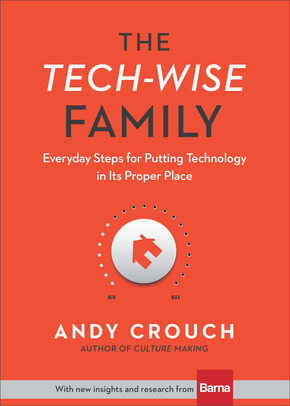
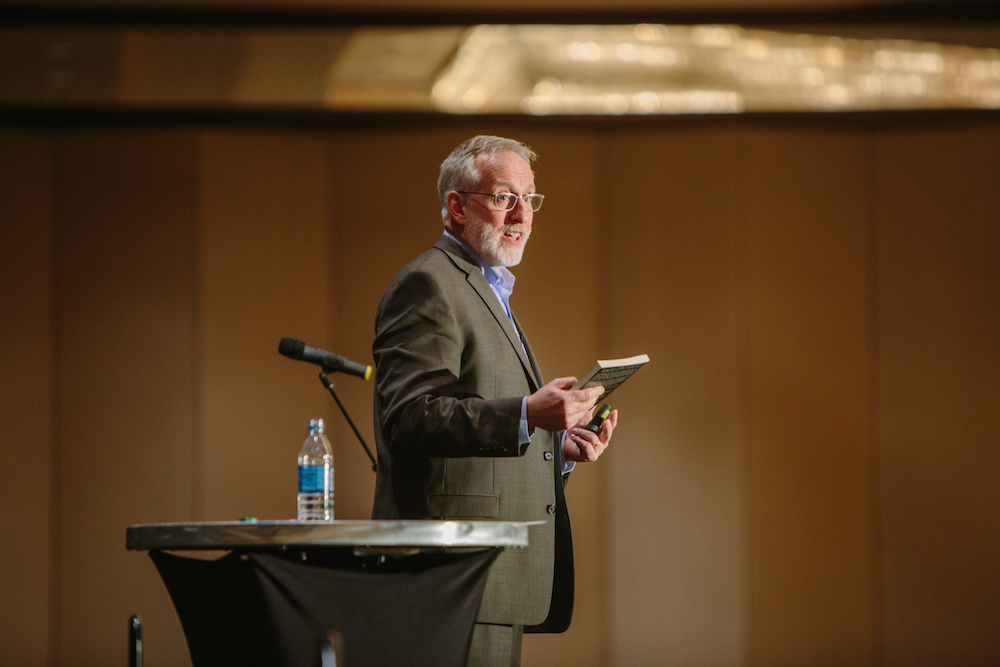 ‘s going to be a fun and informative night. Dan’s a great speaker, lively and funny, and he and his wife Carol have double the experience many of us have — they have raised two sets of twins! And what good parents they are.
‘s going to be a fun and informative night. Dan’s a great speaker, lively and funny, and he and his wife Carol have double the experience many of us have — they have raised two sets of twins! And what good parents they are.